How Many Shades of Blue Exist in Nature
While most blue things are found in nature, it is still the rarest color of all. Unsurprisingly, most things that are blue naturally come from our fauna or flora. Can you guess what they are?
Blue is a calming color that is quite rare in nature–a few flowers, plants, animals, and minerals are some of the things that are naturally blue.
Still, even being so rare (and yet so popular in our society), we managed to put together this massive list of things that are blue in nature.
Mind you, we've only listed things that are naturally blue, so no artificial alterations.
Not only that but this article is divided into a visual representation of naturally blue things in the following categories: blue animals, plants, and foods.
We hope you enjoy it!
Would you add something blue to this list?
What is associated with blue?
Blue is a color often associated with serene and calm things.
Because it is the color of the sky and sea, blue is also seen as a color of depth and stability. Many people find blue a relaxing color.
Unsurprisingly, blue is the most common favorite color among people, followed by green.
A visual list of things that are blue
Here's your list of animals, foods, plants, and things that are naturally blue.
Blue things
1. Ocean
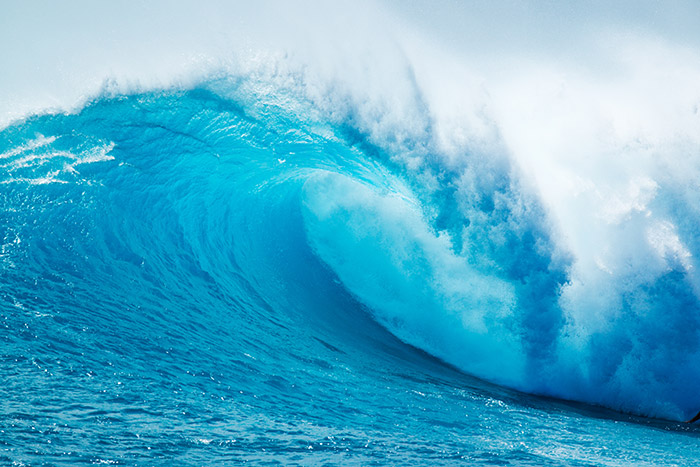
Ocean – The ocean is blue because it absorbs colors on the red part of the light spectrum.
2. Sky
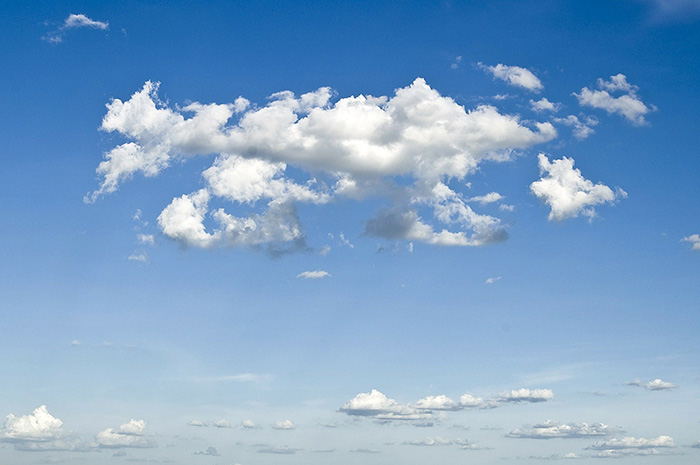
Sky – The sky is blue because the blue light is scattered more often in the atmosphere as its wavelengths are shorter.
3. Eyes
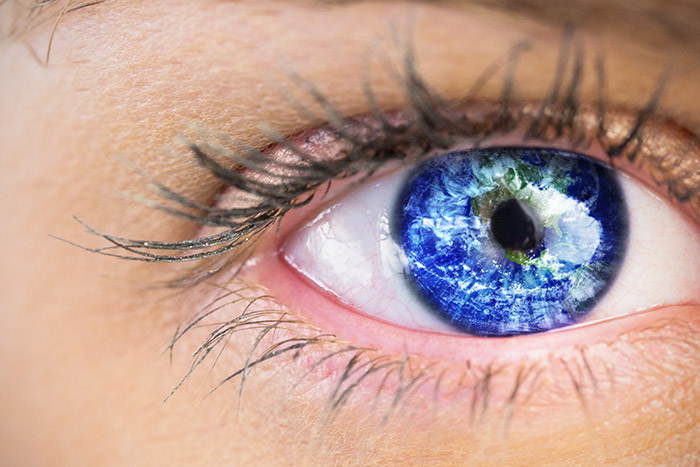
Eye – Only 8% of the world's population has blue eyes.
4. Robin's eggs
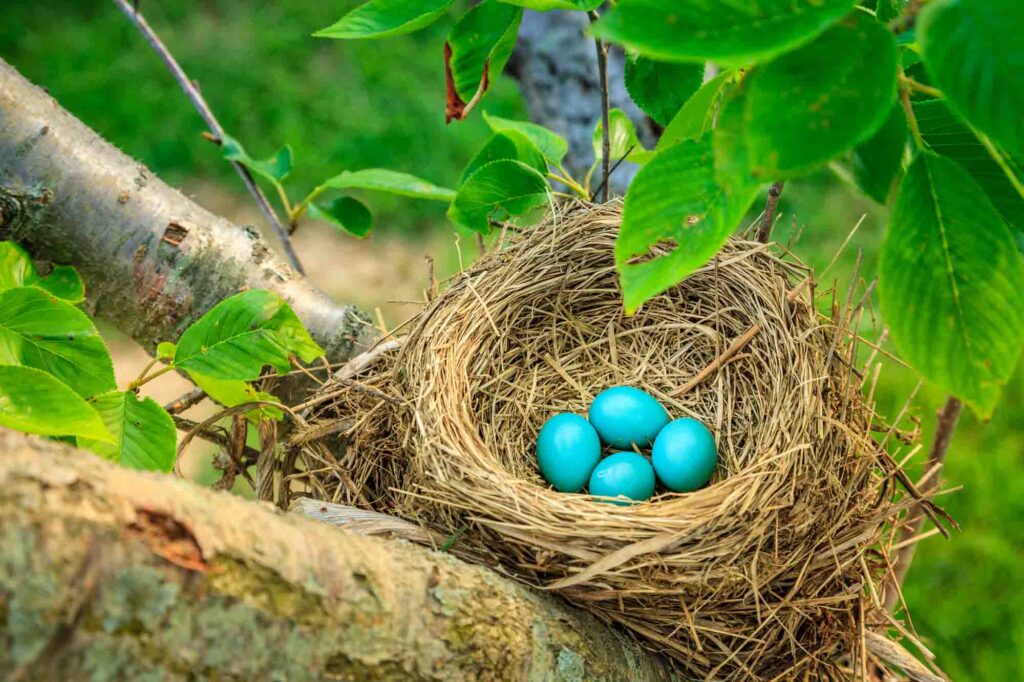
Robin's eggs – The eggs laid by the American robin bird.
5. Sapphire
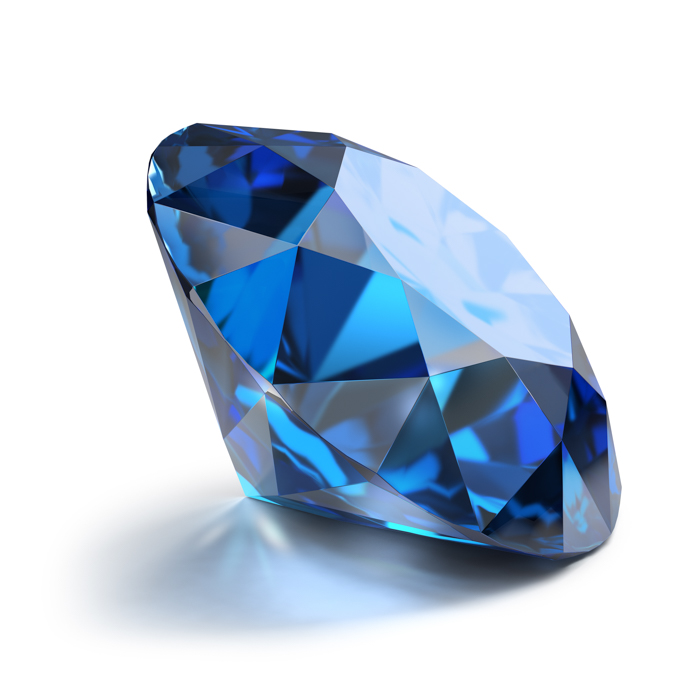
Sapphire – It is a precious typically blue gemstone.
6. Lapis lazuli
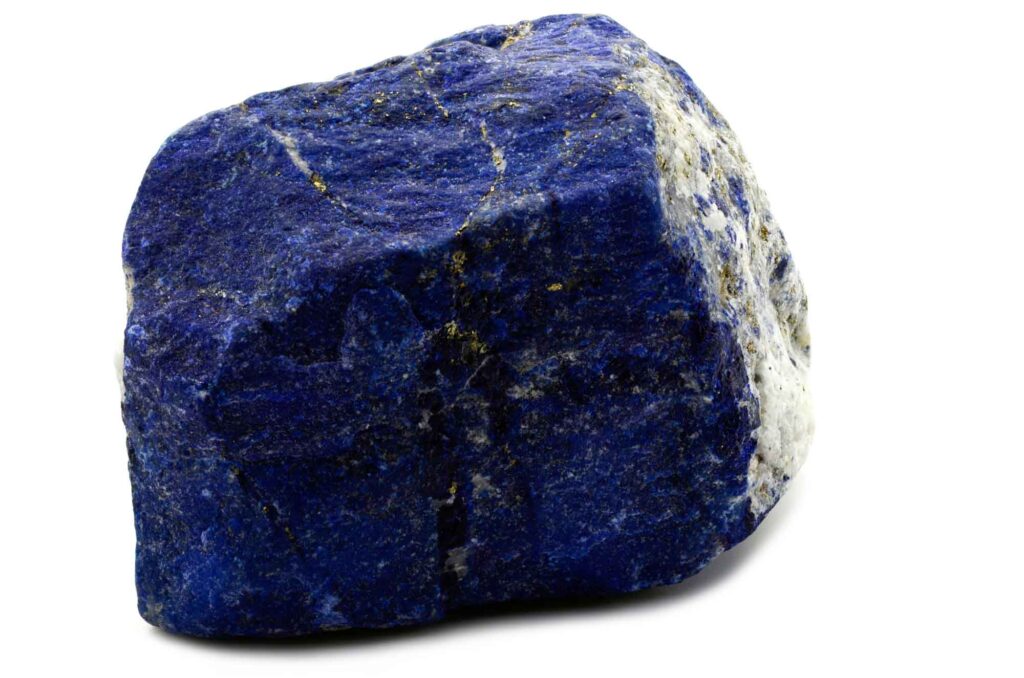
Lapis Lazuli – It is a semi-precious blue stone known for its intense color.
7. Turquoise
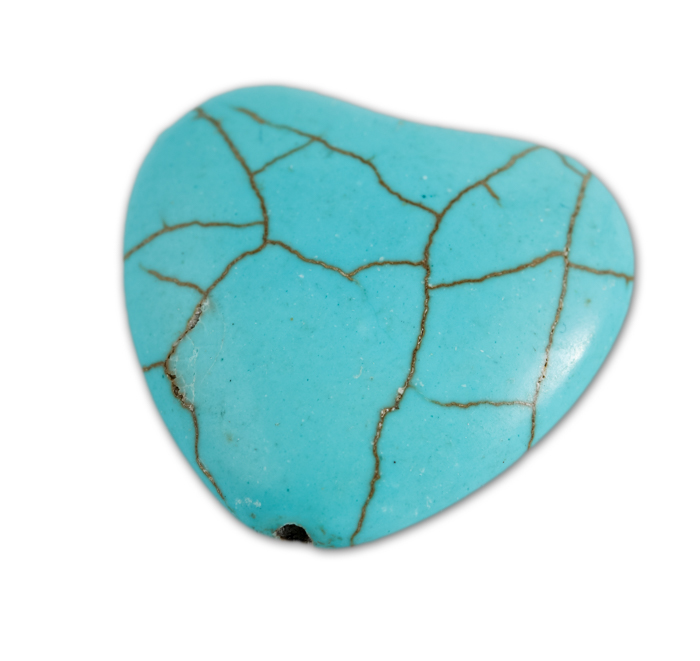
Turquoise – It is a rare and unique gemstone.[1]
8. Gas flames

Gas flames – The blue flames indicate higher temperatures than orange flames.
9. Neptune
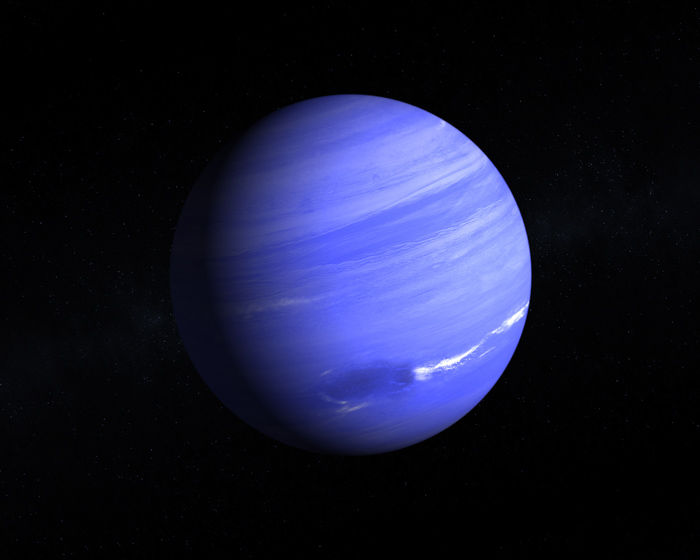
Neptune – Neptune's atmosphere is made of hydrogen, helium, and methane. These components absorb red light and reflect blue light outward, specifically the methane.
10. Uranus
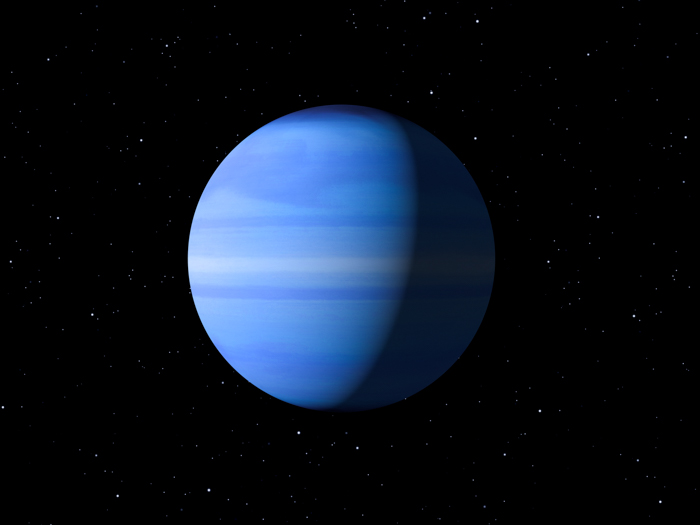
Uranus – Uranus is blue for the same reason as Neptune.
Blue animals
11. Peacock
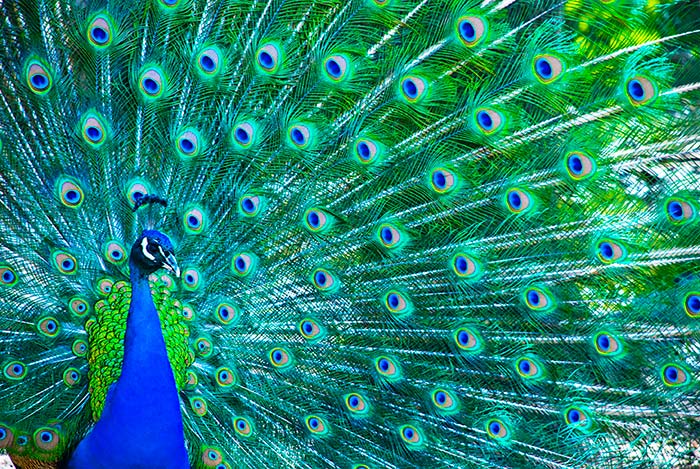
Peacock – It is a male bird famous for its imposing feathers.
12. Blue and yellow macaw
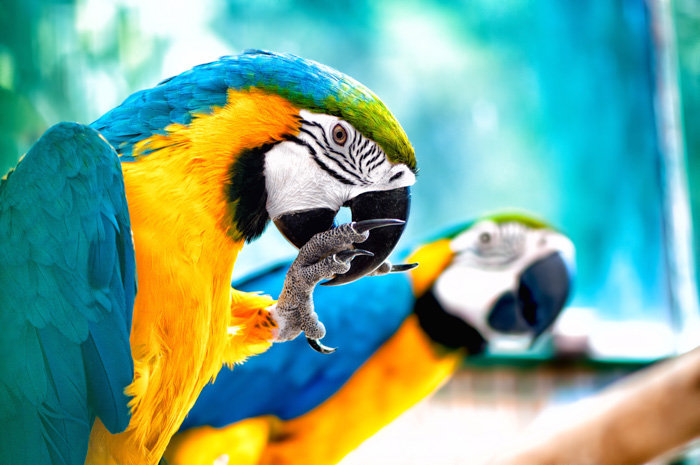
Blue and yellow macaw – It's a beautiful long-tailed parrot.
13. Starfish
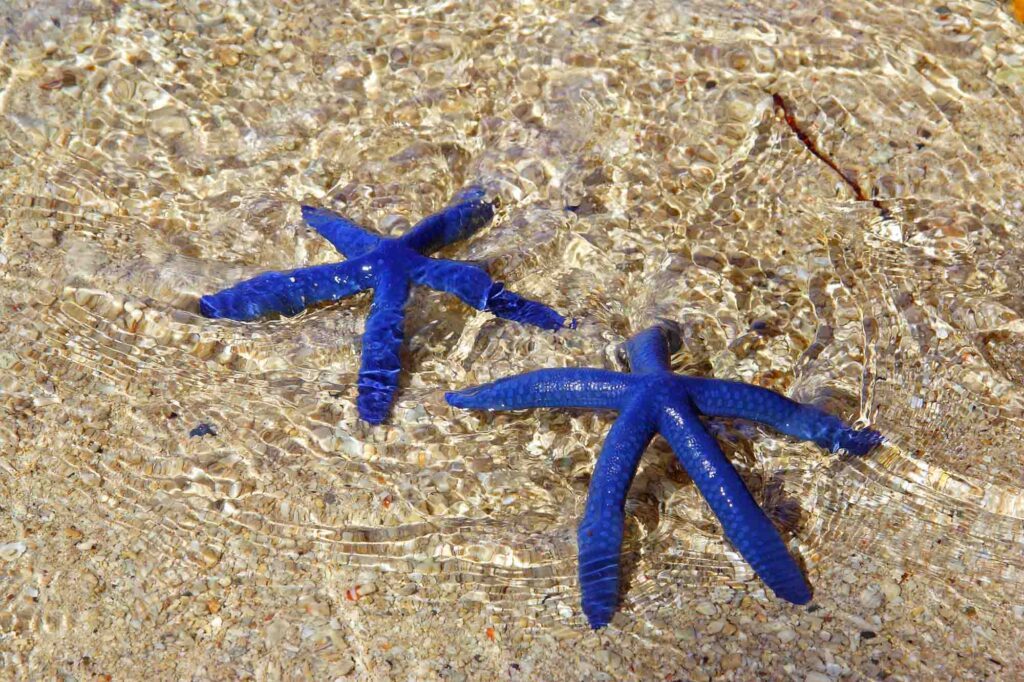
Starfish – Marine animals that live in saltwater.
14. Kingfisher
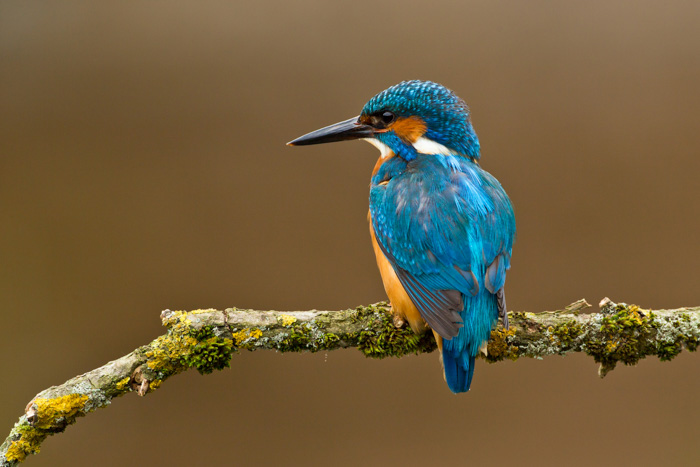
Kingfisher – It's a medium-sized, brightly colored bird found in the tropical regions of Africa, Asia, and Oceania.
15. Greater blue-eared starling
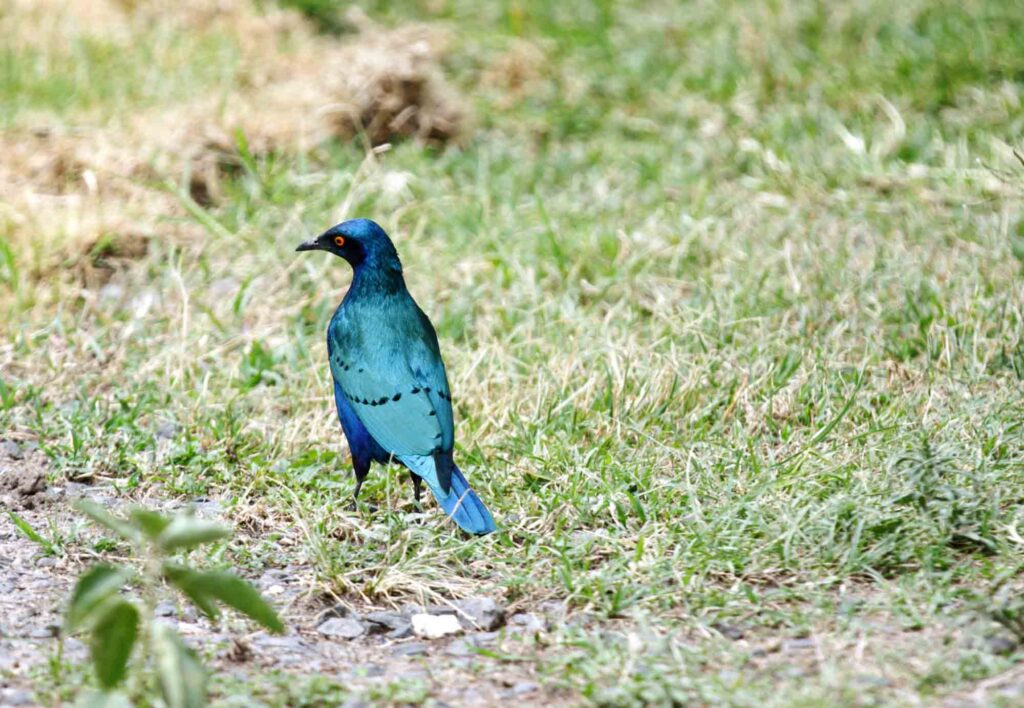
Greater Blue-Eared Starling – It's a common species of open woodland bird that breeds in certain parts of Africa.
16. Blue morpho
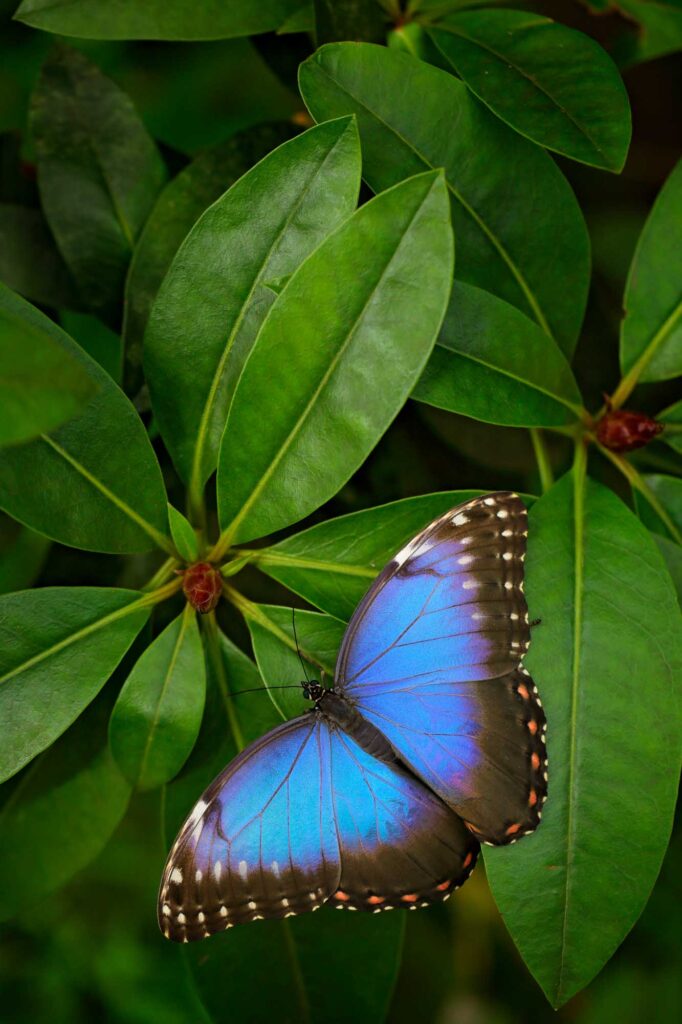
Blue morpho – The blue morpho is among the largest butterflies in the world, with wings spanning from five to eight inches.
17. Hyacinth macaw
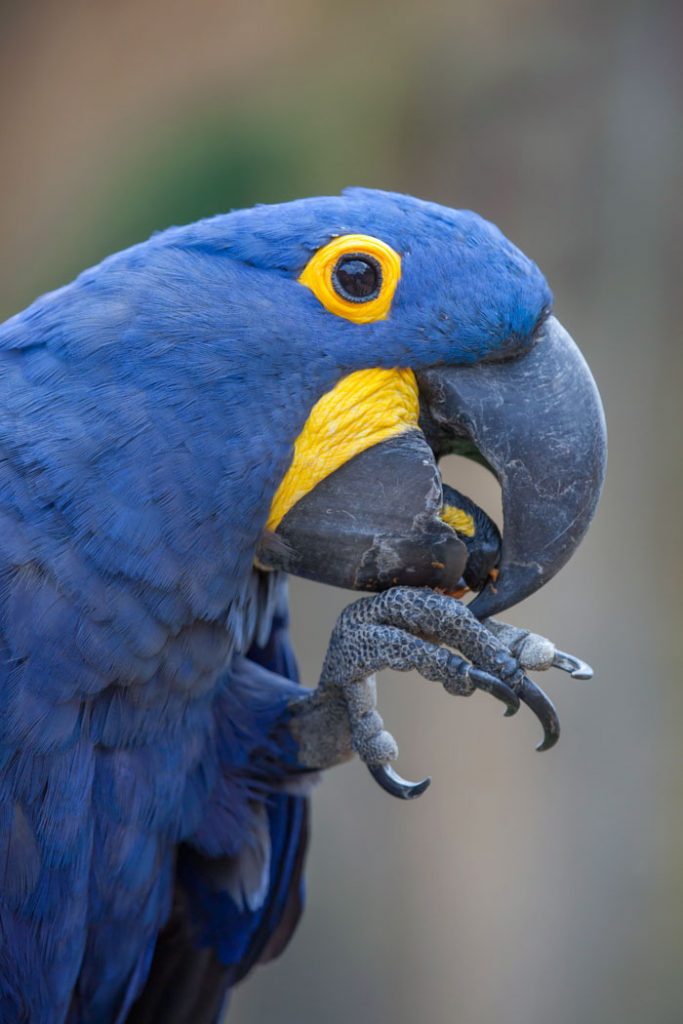
Hyacinth Macaw – It is a parrot native to central and eastern South America.
18. Blue dart frog
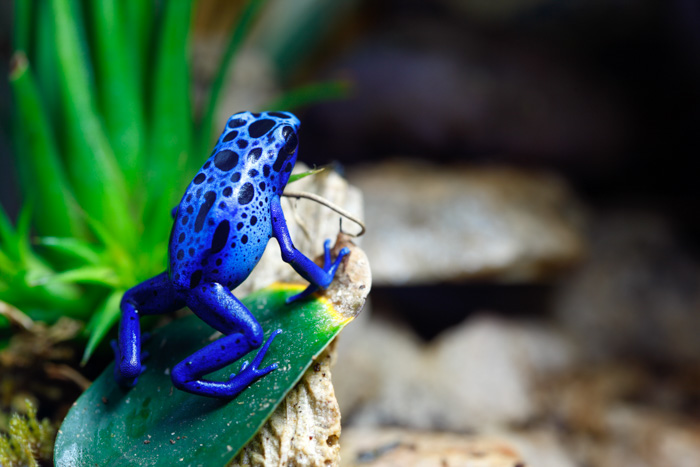
Dart Frog – It is a poisonous frog native to tropical Central and South America.
19. Humphead wrasse
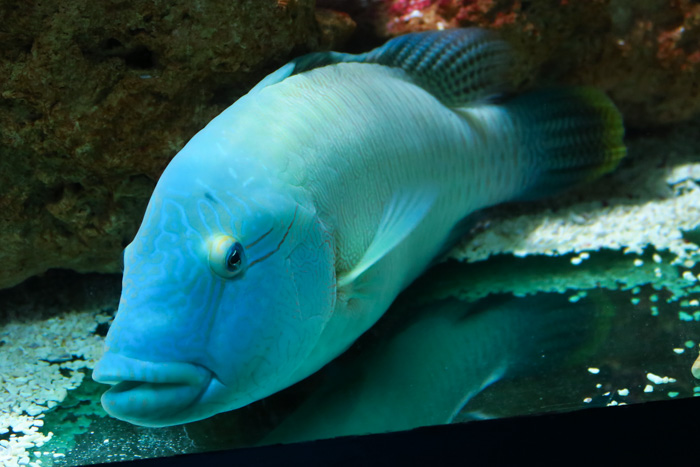
Humphead Wrasse – It is a large species of wrasse mainly found on coral reefs in the Indo-Pacific region.
20. Blue damselfly
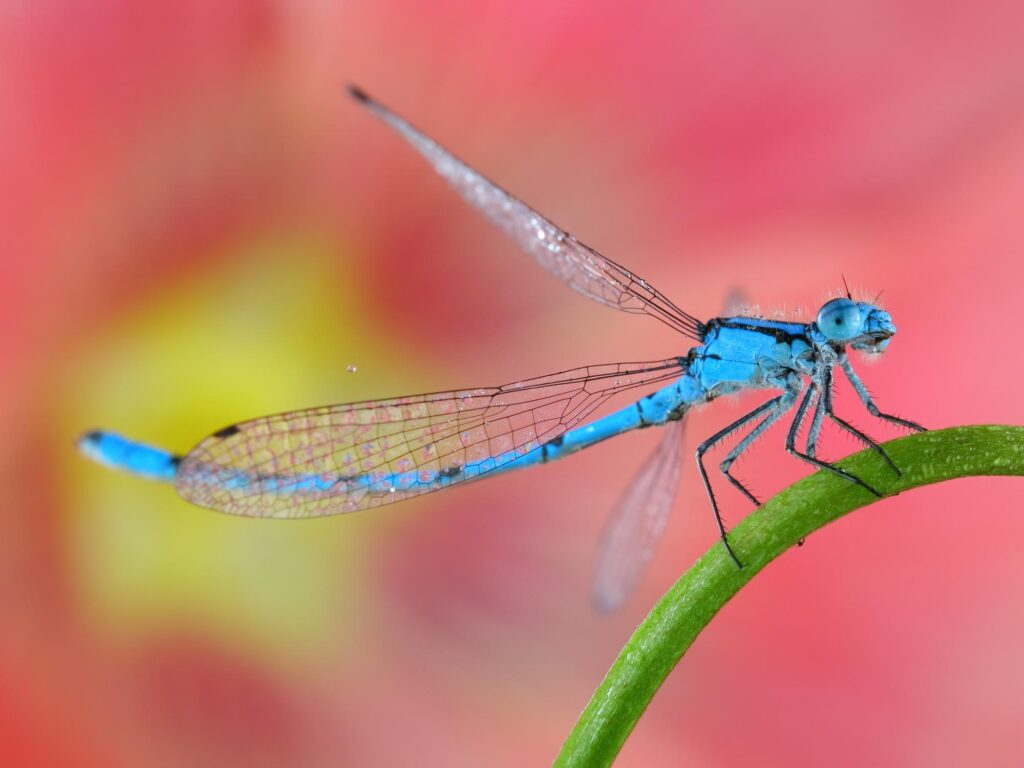
Blue Damselfly – It is a species found mainly in Russia, Europe, and South Korea.
21. Great blue heron
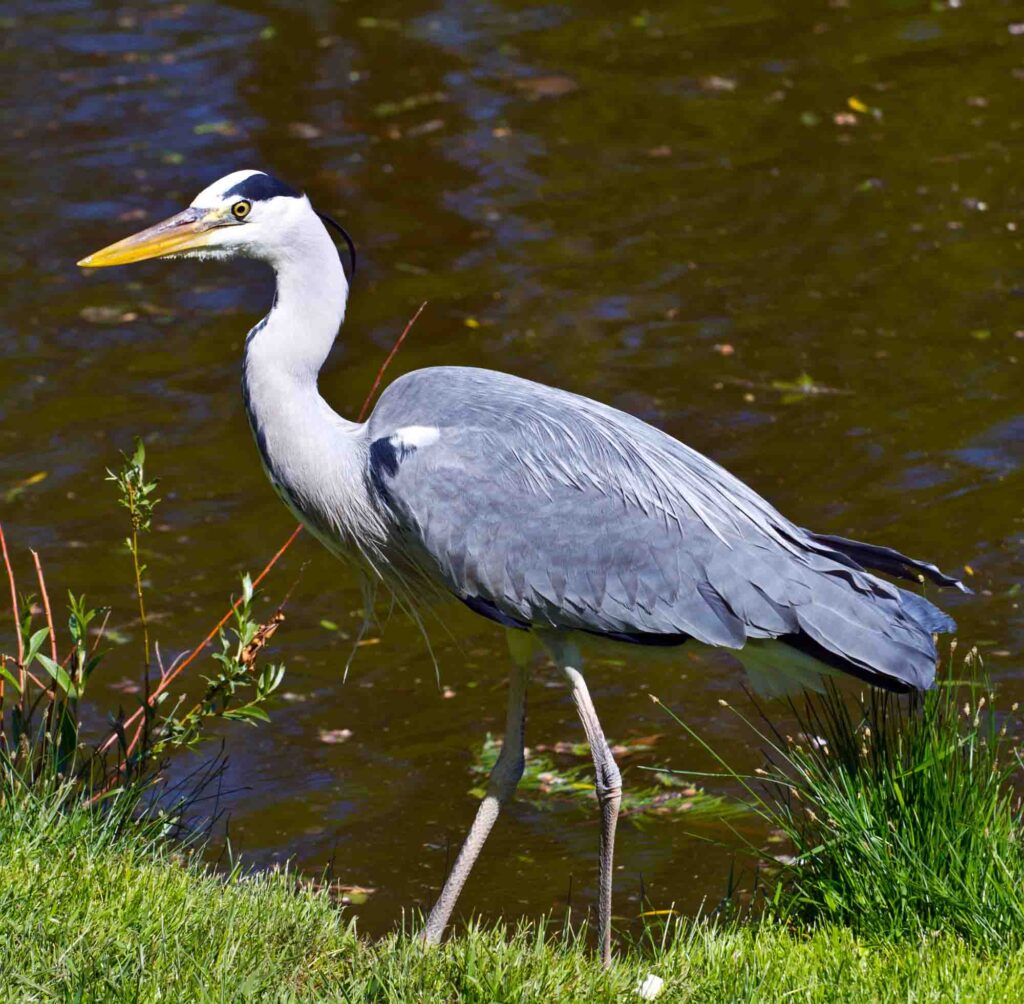
Great Blue Heron – It is a large wading bird common near the shores of open water and in wetlands over most of North America and Central America, as well as the Caribbean and the Galápagos Islands.
22. Blue dasher
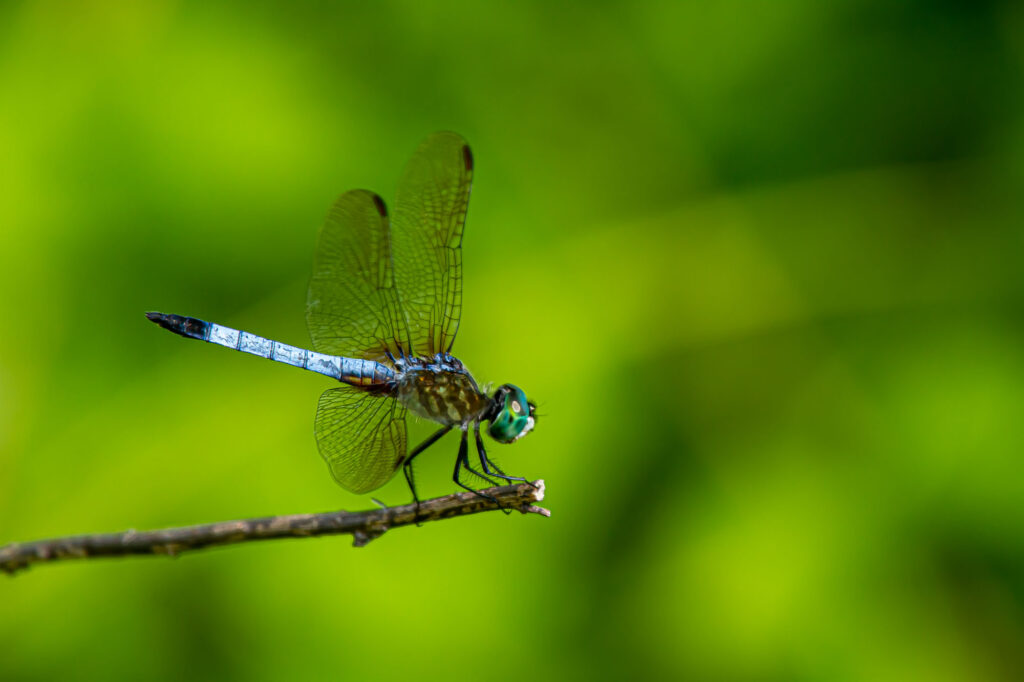
Blue Dasher – It is a dragonfly of the skimmer family. It is very common and widely distributed throughout North America and into the Bahamas.
23. Blue moor frog
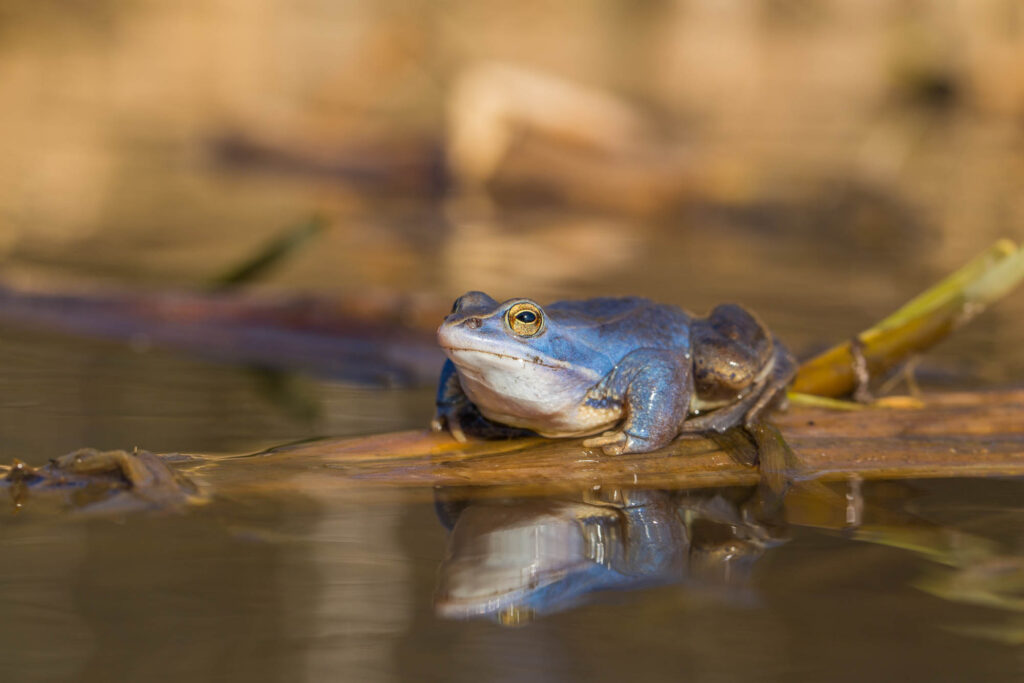
Blue Moor Frog – The male can be colored blue for a small period of two or three days a year.
24. Blue clam
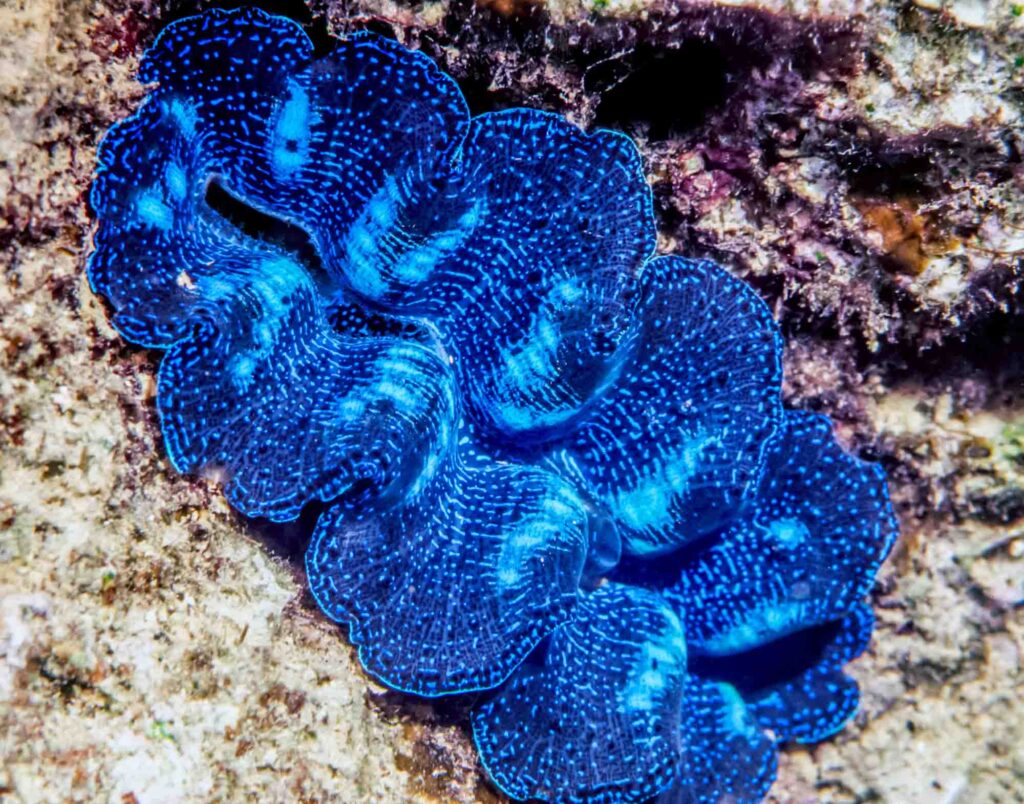
Blue Clam – It is one of many ornamental invertebrates that live in saltwater.
25. Mazarine blue butterfly
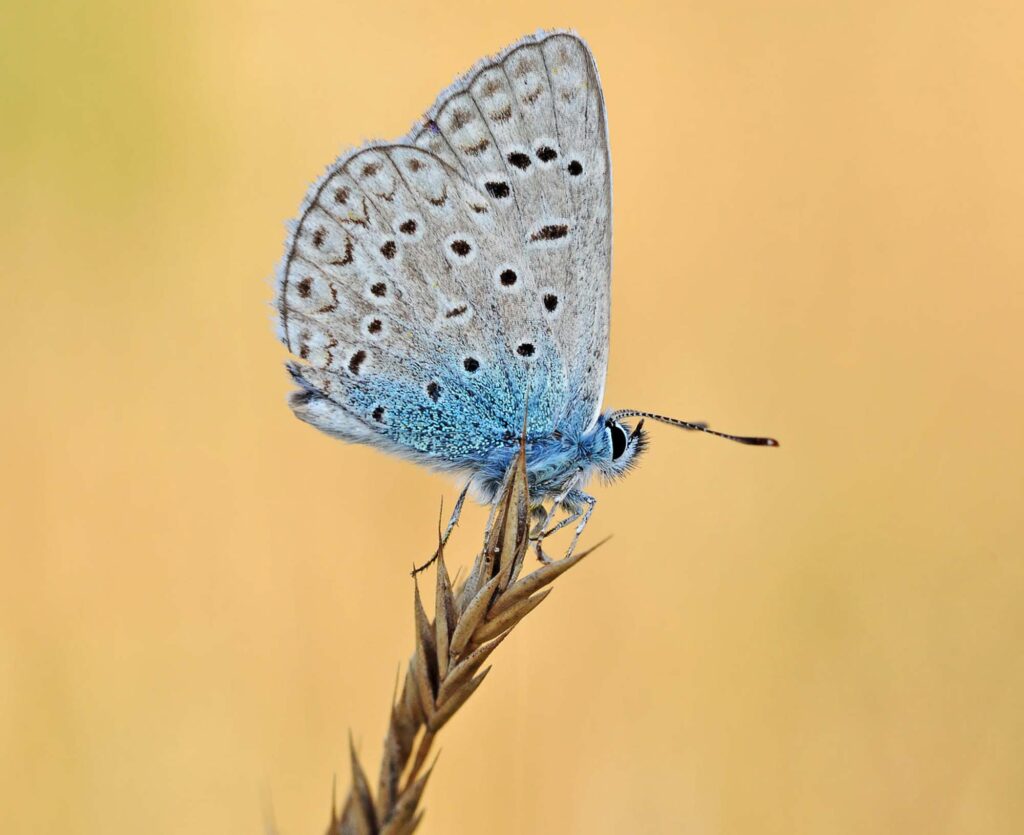
Mazarine Blue Butterfly – It's a beautiful Palearctic butterfly.
26. Eurasian blue tit
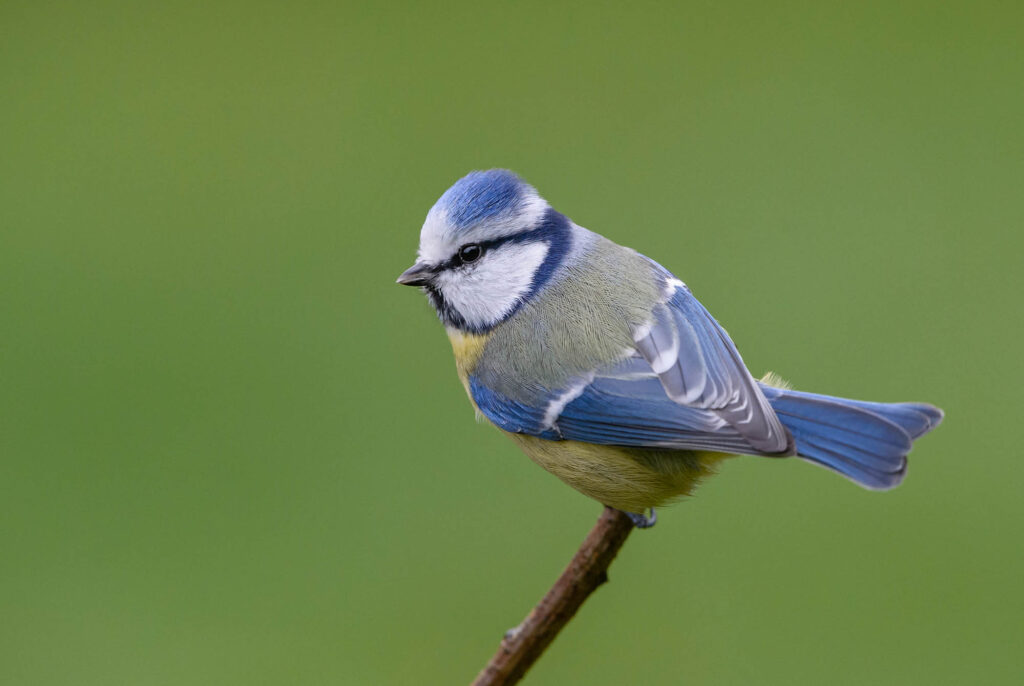
Eurasian Blue Tit – It is a small passerine bird in thetit family, Paridae. It is easily recognizable by its blue and yellow plumage and small size.
27. Eastern bluebird
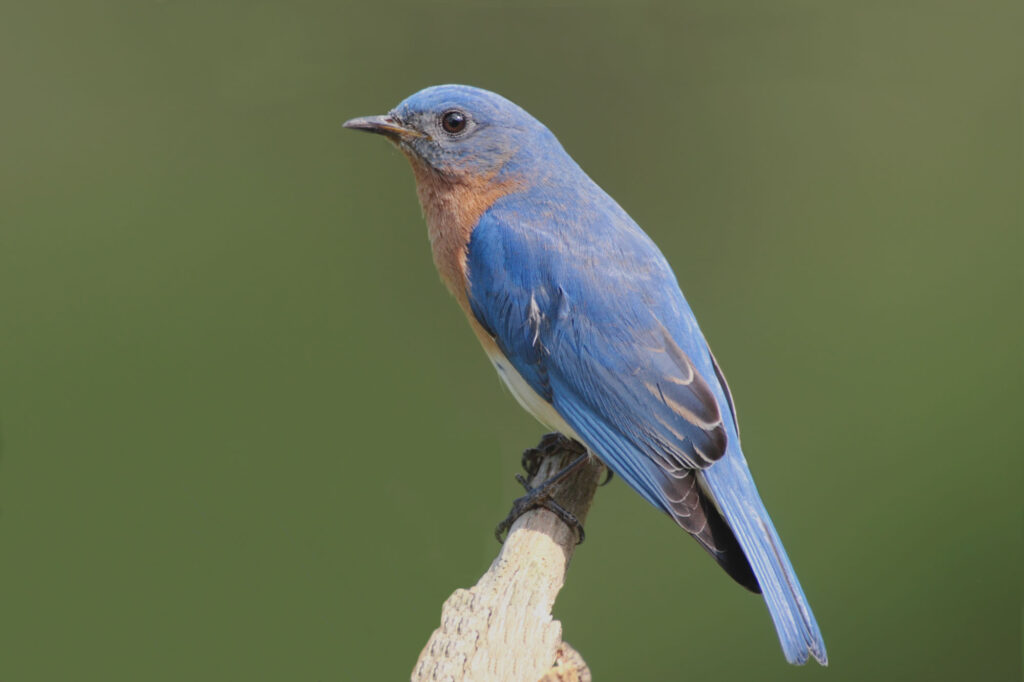
Eastern Bluebird – It is a small North American migratory thrush found in open woodlands, farmlands, and orchards.
28. Blue crab
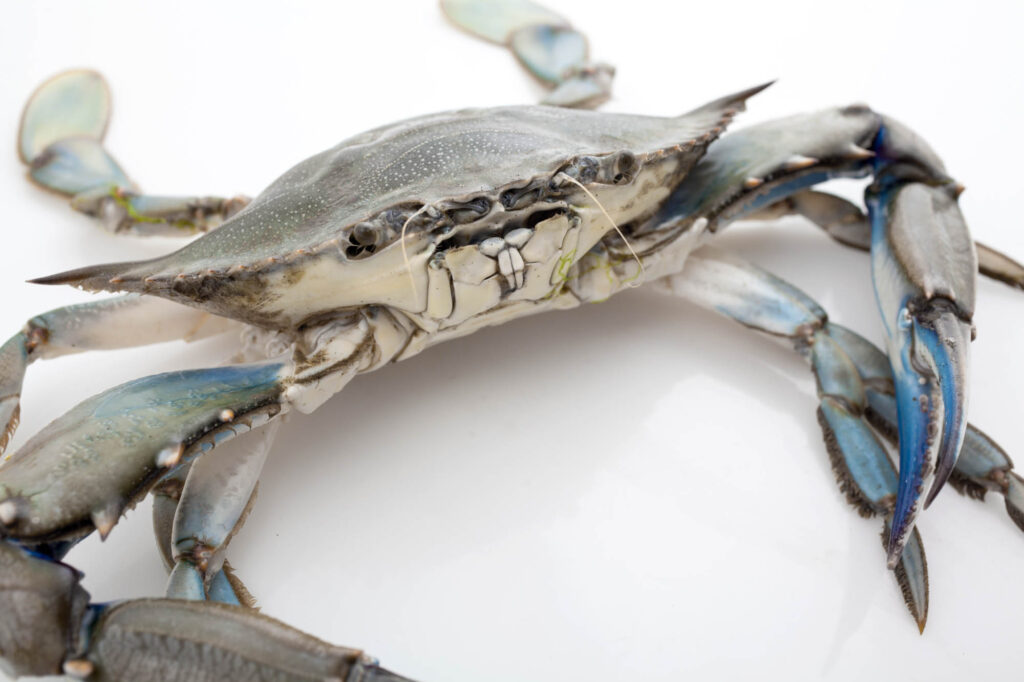
Blue Crab – Blue crabs are found in brackish coastal lagoons and estuaries from Nova Scotia, through the Gulf of Mexico, and as far south as Uruguay.
29. Blue racer snake
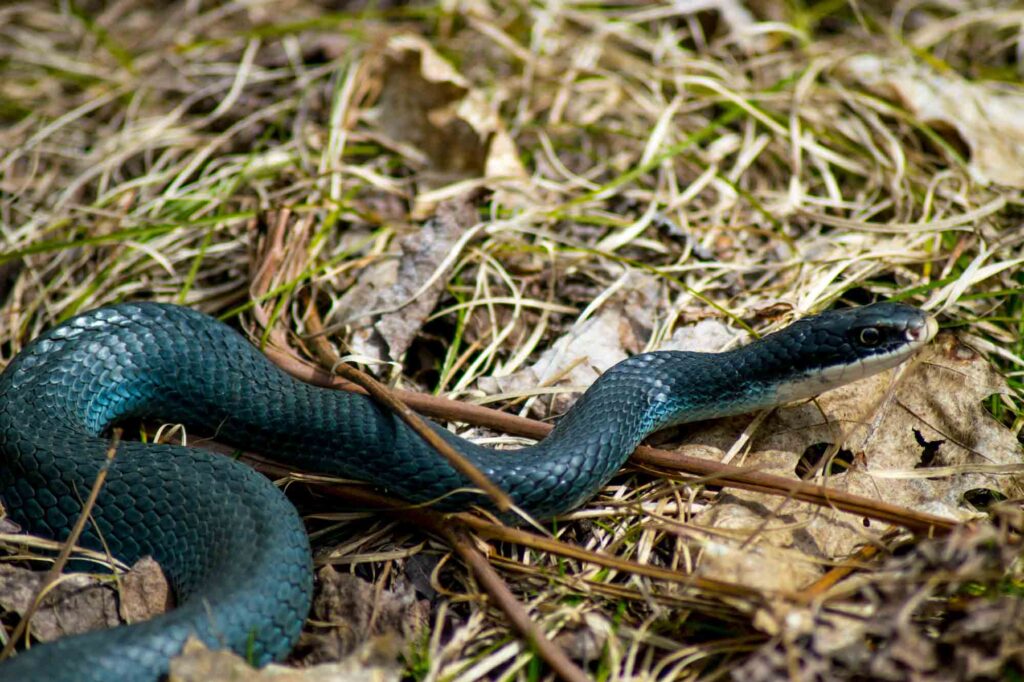
Blue Racer Snake – It is an endangered blue snake found in the USA and Canada.
30. Blue jay
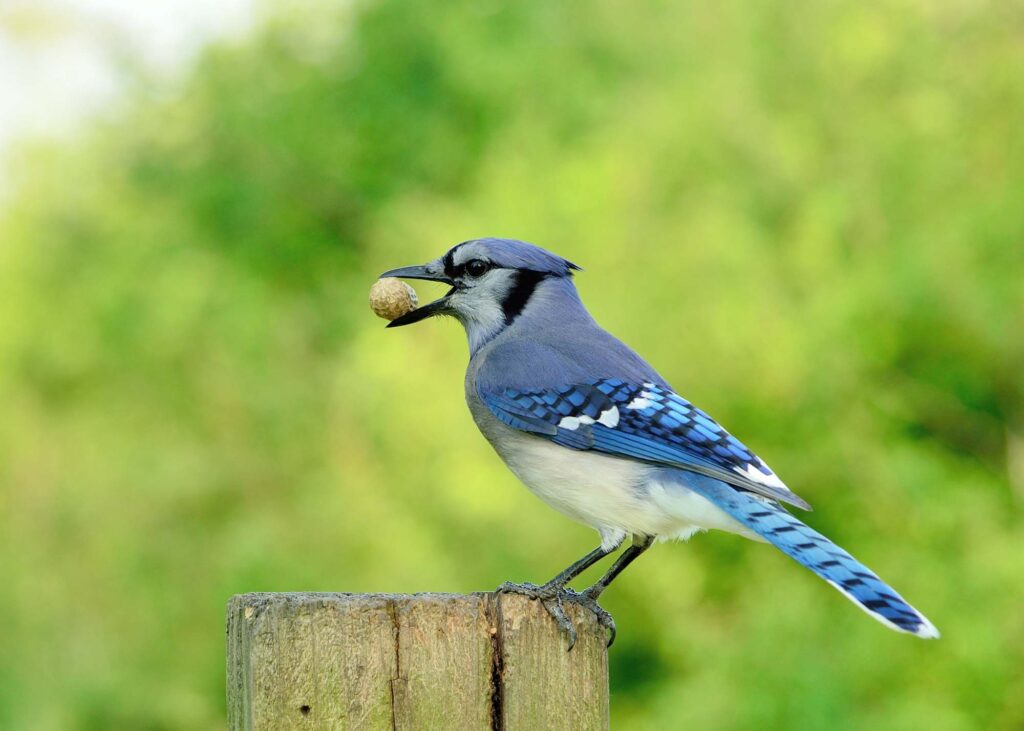
Blue Jay – It is a passerine bird in the family Corvidae, native to eastern North America.
31. Steel-blue ladybug
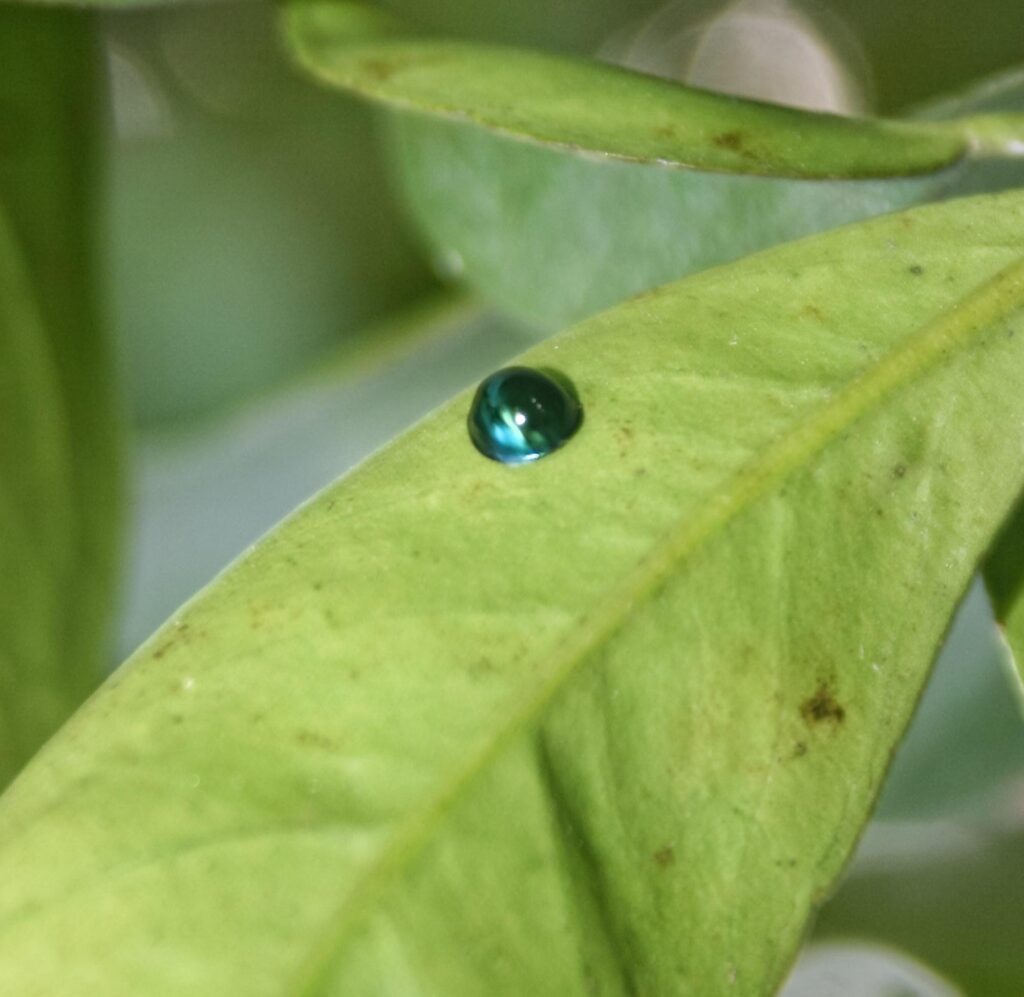
Steel-blue ladybug – The Steel-blue ladybug, also known as Halmus Chalybeus, is native to Australia.
32. Siamese fighting fish
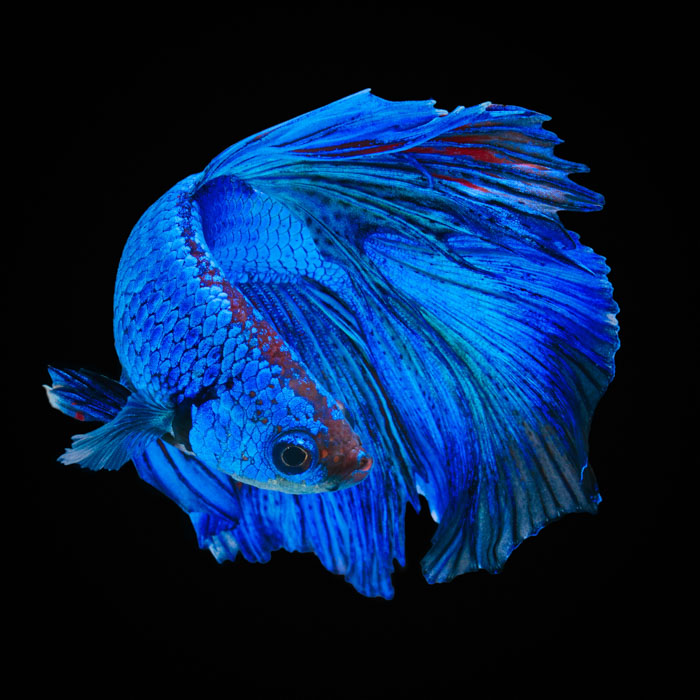
Siamese Fighting Fish – The Siamese fighting fish (Betta splendens), also known as the betta, is a popular fish in the aquarium trade. Bettas are a member of the gourami family and are known to be highly territorial. Males in particular are prone to high levels of aggression and will attack each other if housed in the same tank.
33. Blue lobster
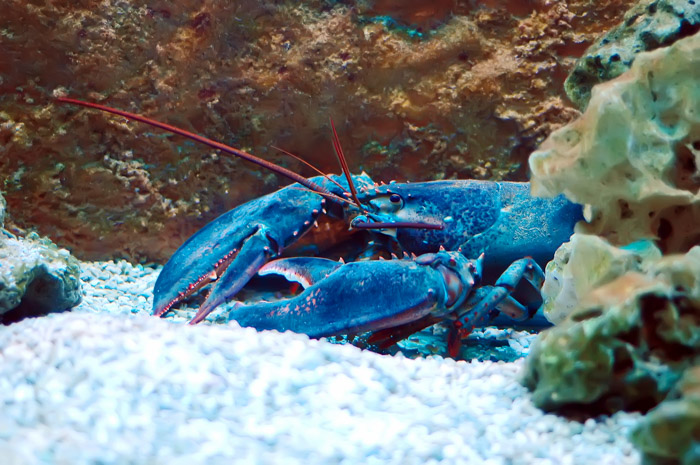
Blue Lobster – Bright blue lobsters are so-colored because of a genetic abnormality that causes them to produce more of a certain protein than others.
34. Tree swallow
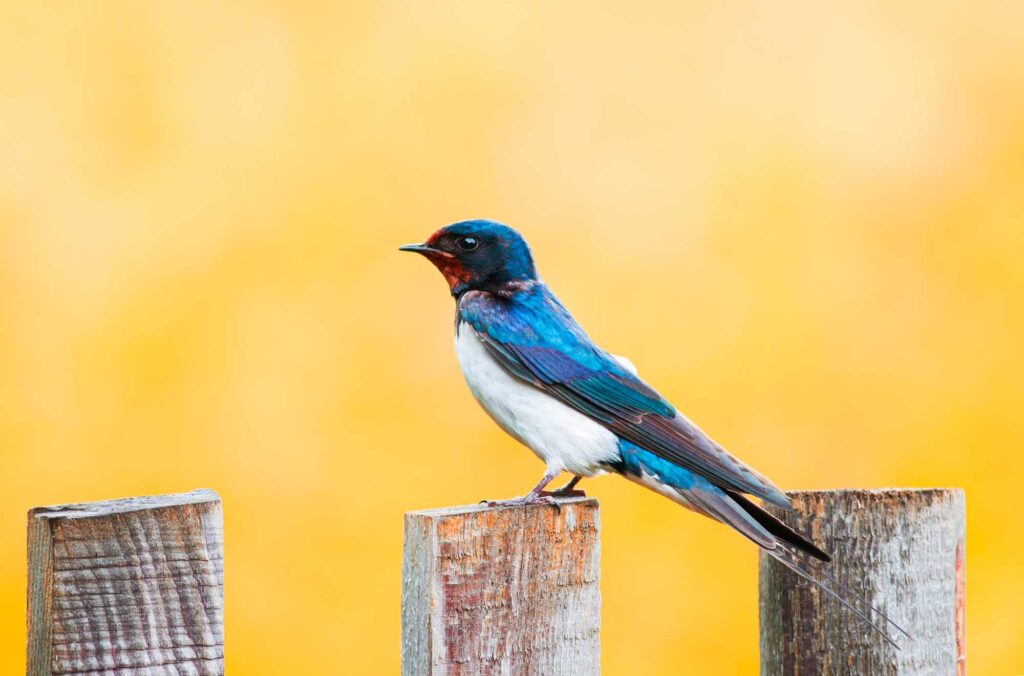
Tree Swallow – It is a migratory bird found in the Americas.
35. Blue crayfish
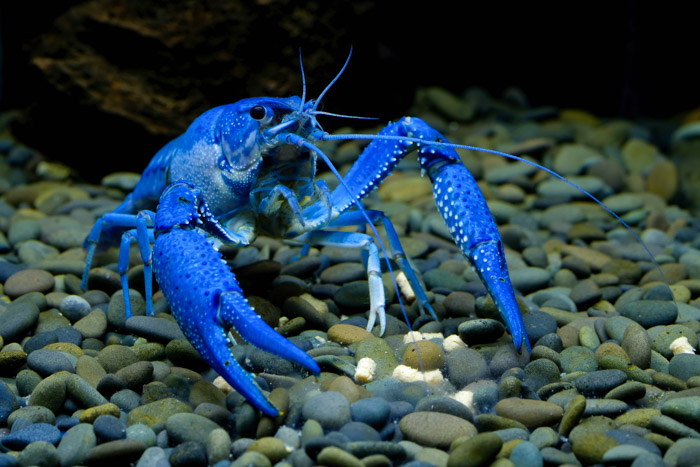
Blue Crayfish – The blue crayfish, sometimes called the electric blue crayfish, the sapphire crayfish, or the Florida crayfish, is a species of freshwater crayfish endemic to Florida in the United States.
36. Blue Dacnis
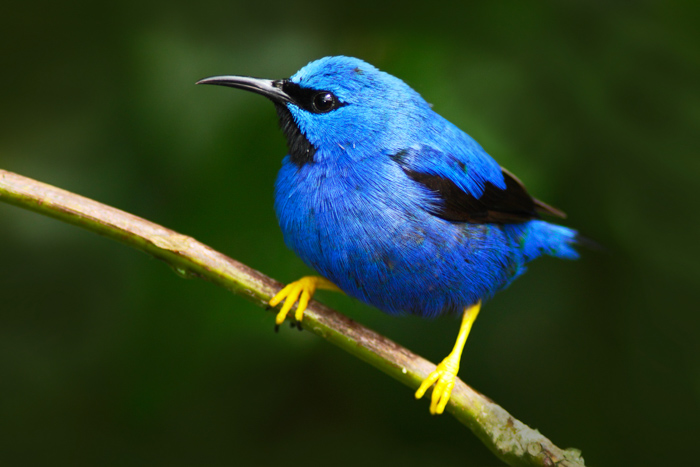
Blue Dacnis – It a small blue, nearly turquoise bird found in Central and South America also known as Honeycreeper.
37. Blue Tang
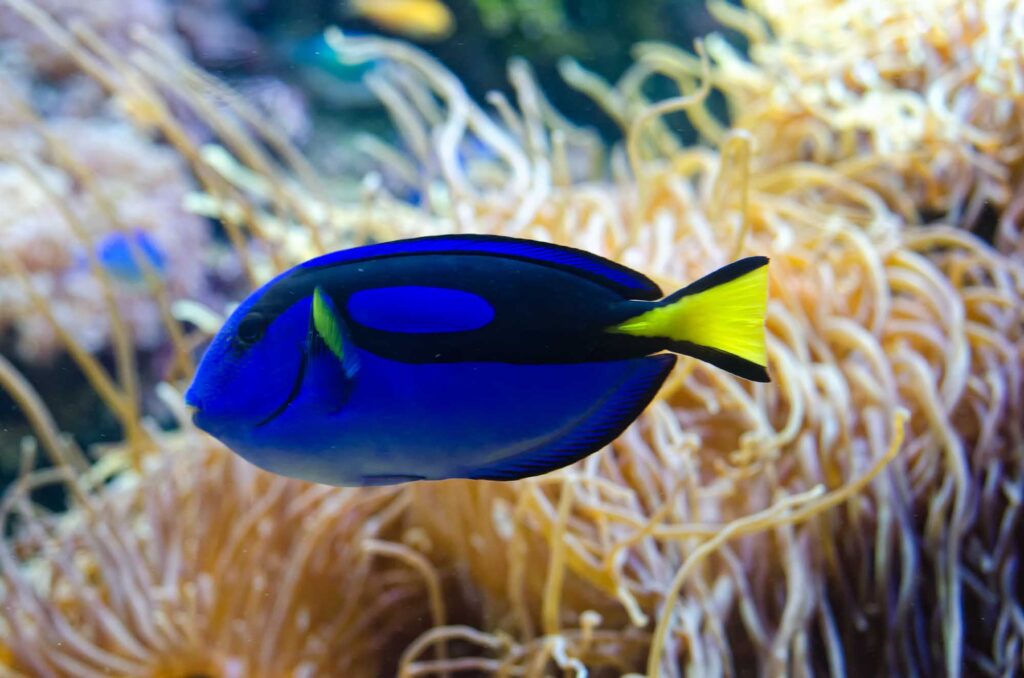
Blue Tang – The regal blue tang is one of the most common and most popular marine aquarium fish all over the world.
38. Indian Peafowl
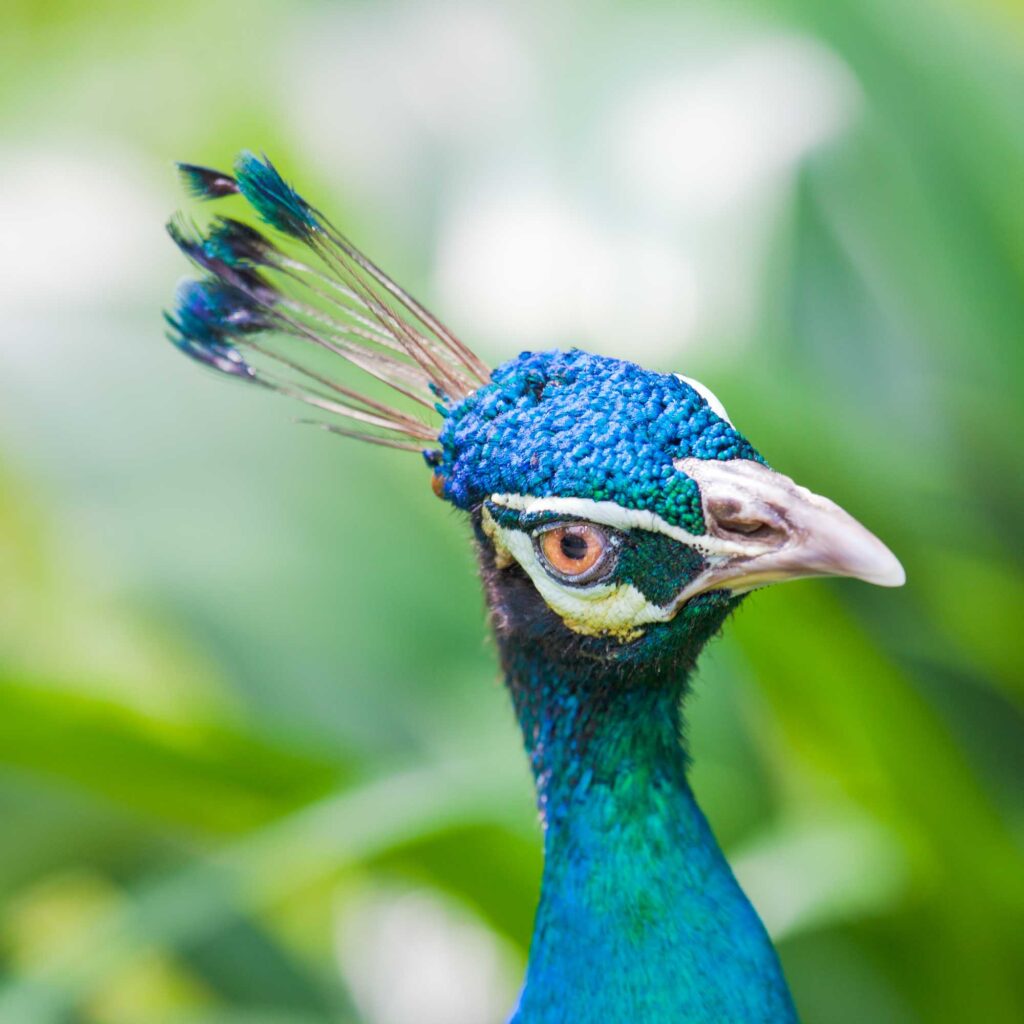
Indian Peafowl – It is a common peafowl found in the Indian subcontinent.
39. Blue-Ringed Octopus
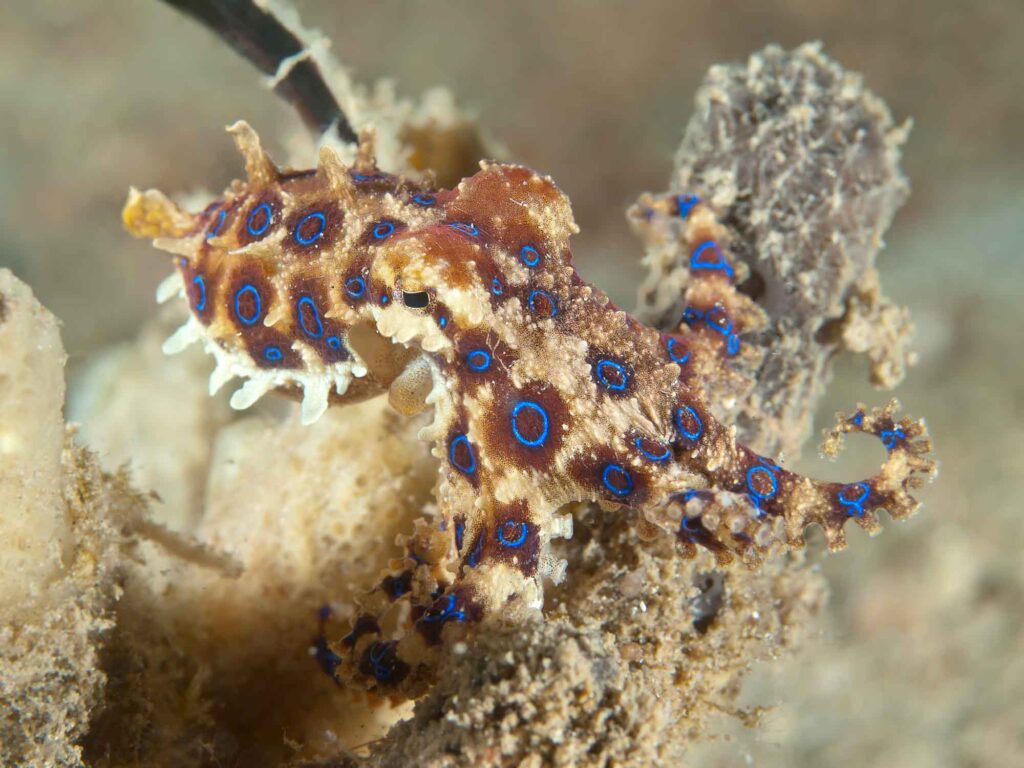
Blue-Ringed Octopus – It is a highly venomous species of octopus that are found in tide pools and coral reefs in the Pacific and Indian oceans, from Japan to Australia.
40. Blue Iguana
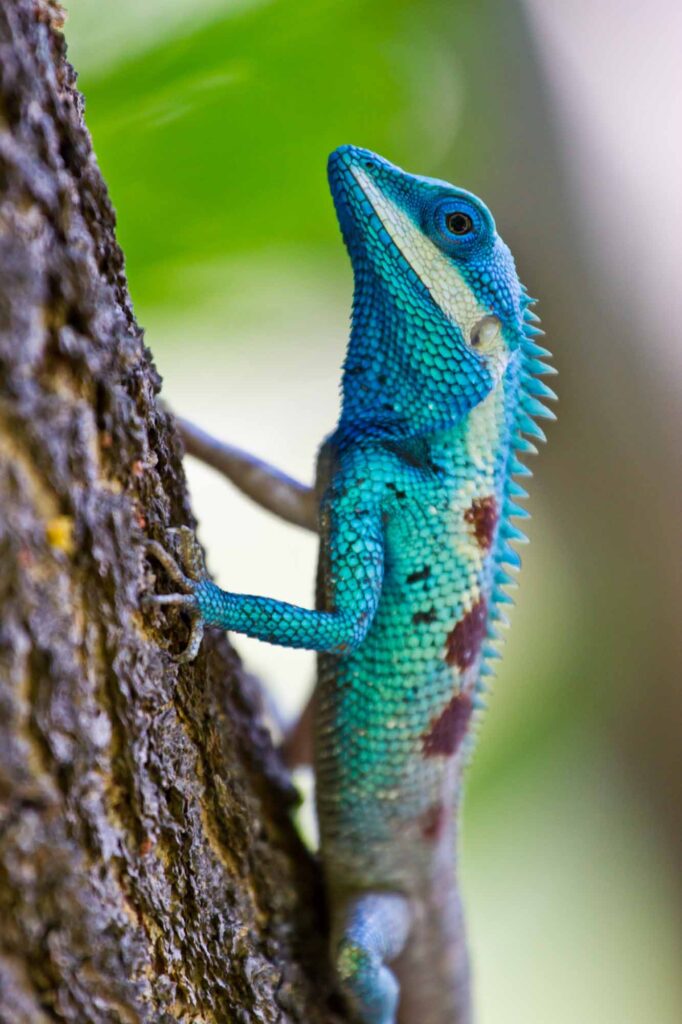
Blue Iguana – It is an endangered species of lizard native to Grand Cayman Island.
41. Blue Shark
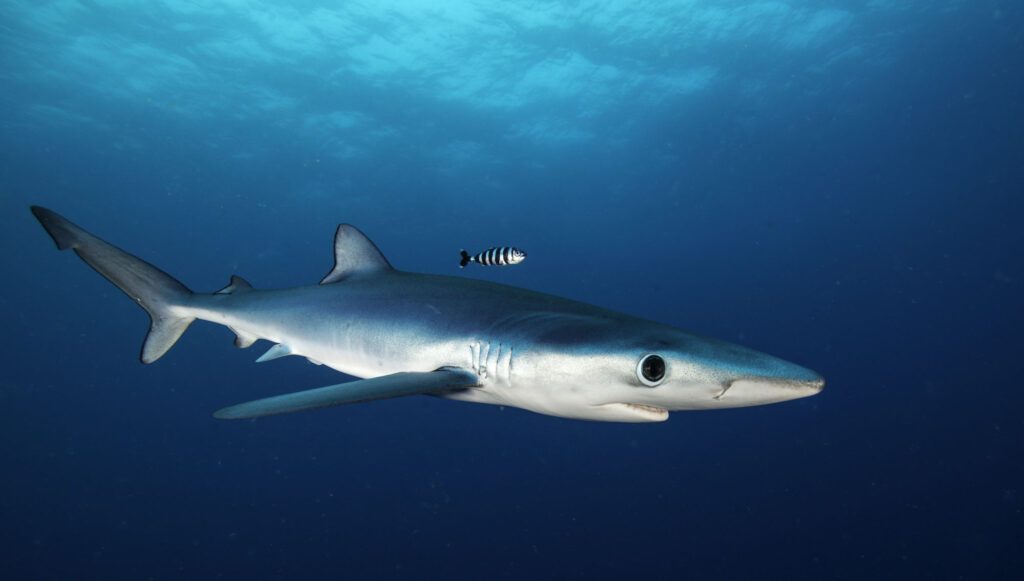
Blue Shark – The blue shark is a species of requiem shark that inhabits deep waters in the world's temperate and tropical oceans. The blue shark migrates long distances, such as from New England to South America.
42. Sea Slug
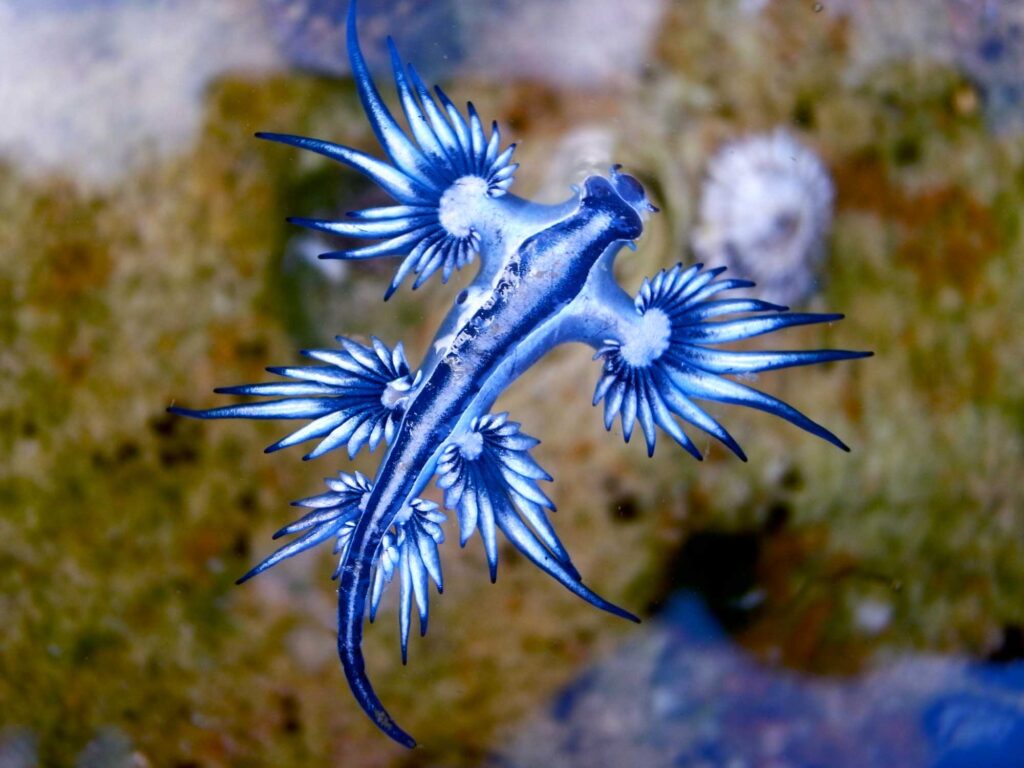
Sea Slug – It is a marine invertebrate.
43. Cerulean Warbler
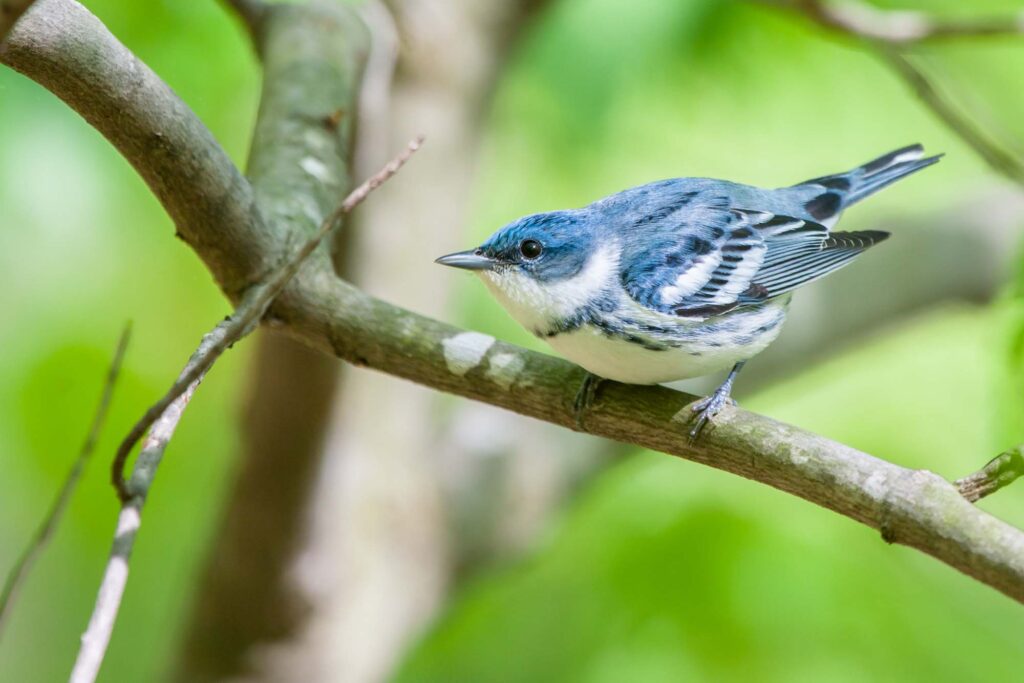
Cerulean Warbler – It is a small songbird with a blue, white, and black body.
44. Periwinkle Blue Footed Booby
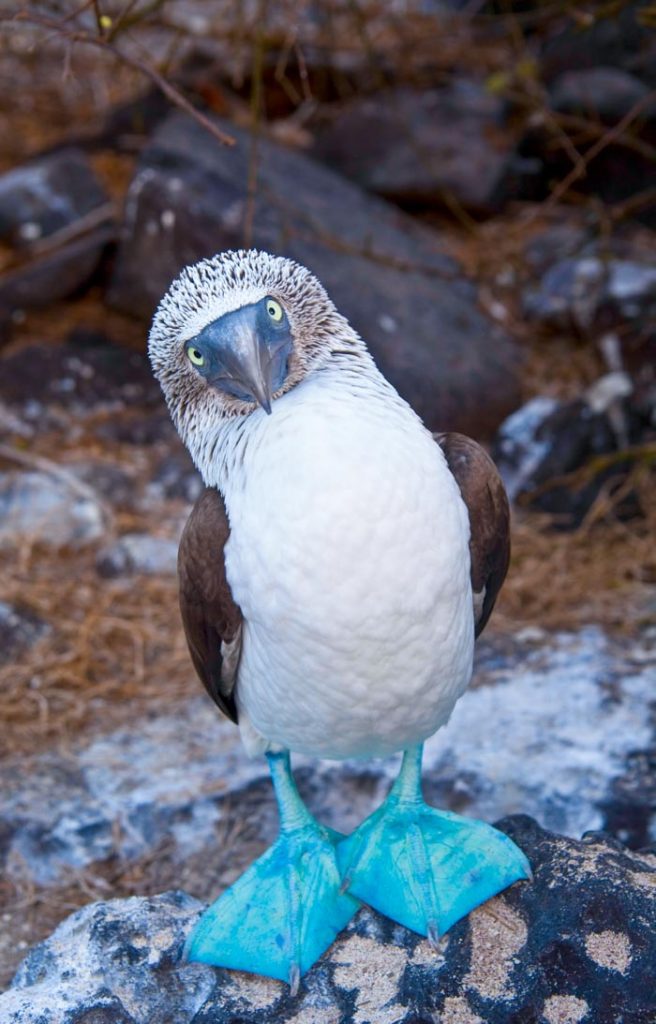
Periwinkle Blue Footed Booby – It is a marine bird native to subtropical and tropical regions of the eastern Pacific Ocean.
45. Blue Spotted Puffer Fish
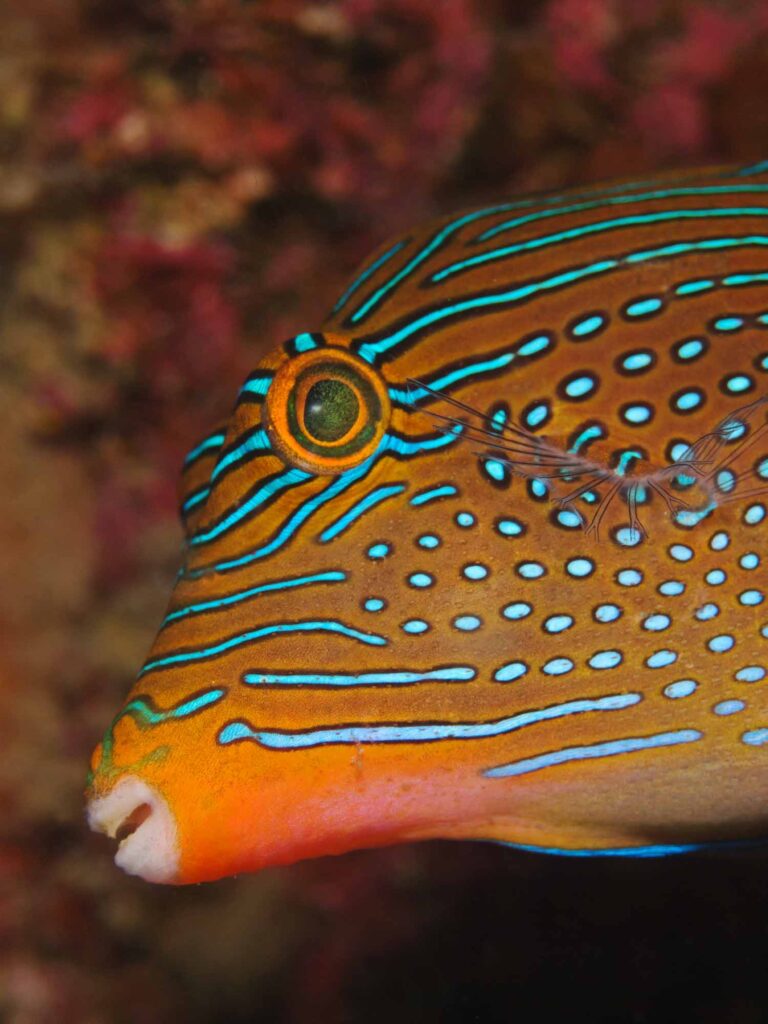
Blue Spotted Puffer Fish – It is an orange poisonous fish with blue spots all over its body.
46. Indigo Bunting
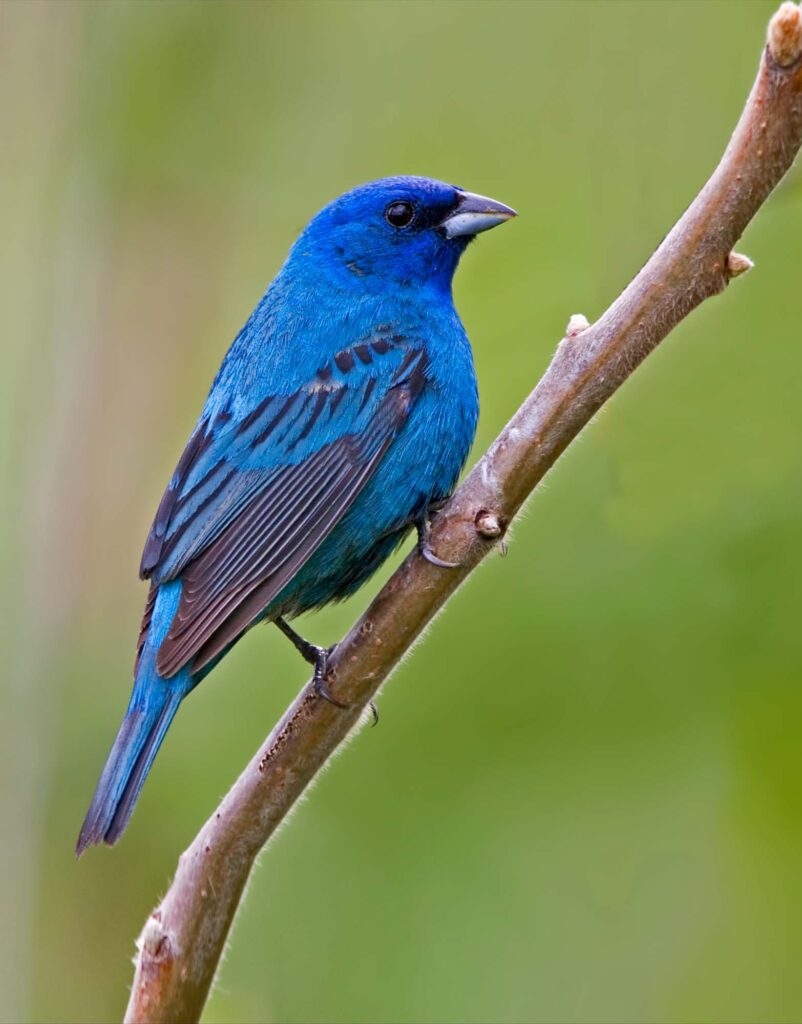
Indigo Bunting – It is a small seed-eating bird found in the Americas.
47. Ulysses Butterfly
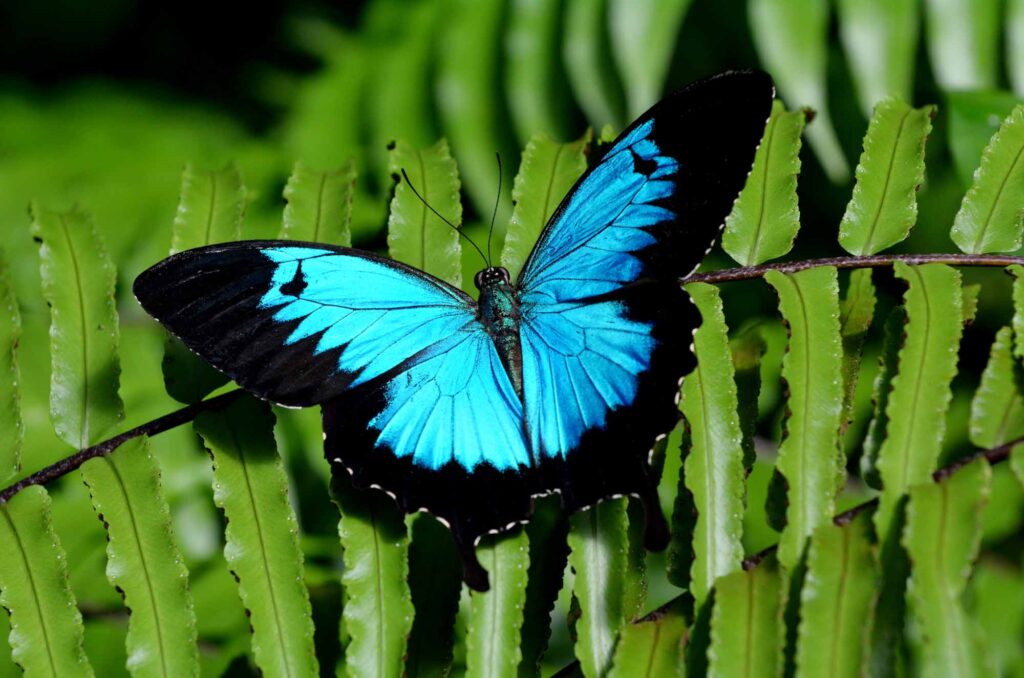
Ulysses Butterfly – It is a large swallowtail butterfly of Australia, Indonesia, Papua New Guinea, and the Solomon Islands.
48. Splendid Fairywren
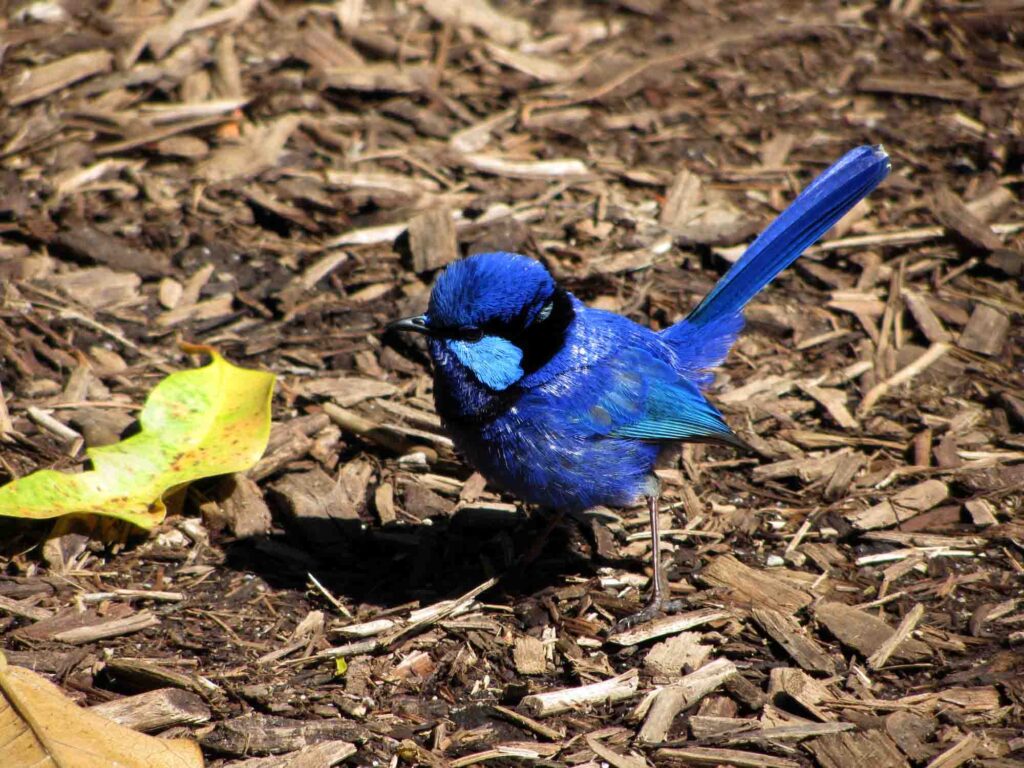
Splendid Fairywren – A small bird with a long blue tail that is held cocked. Breeding males are almost entirely blue with a strong black line from the bill through the eyes.
49. Ribbon Eel
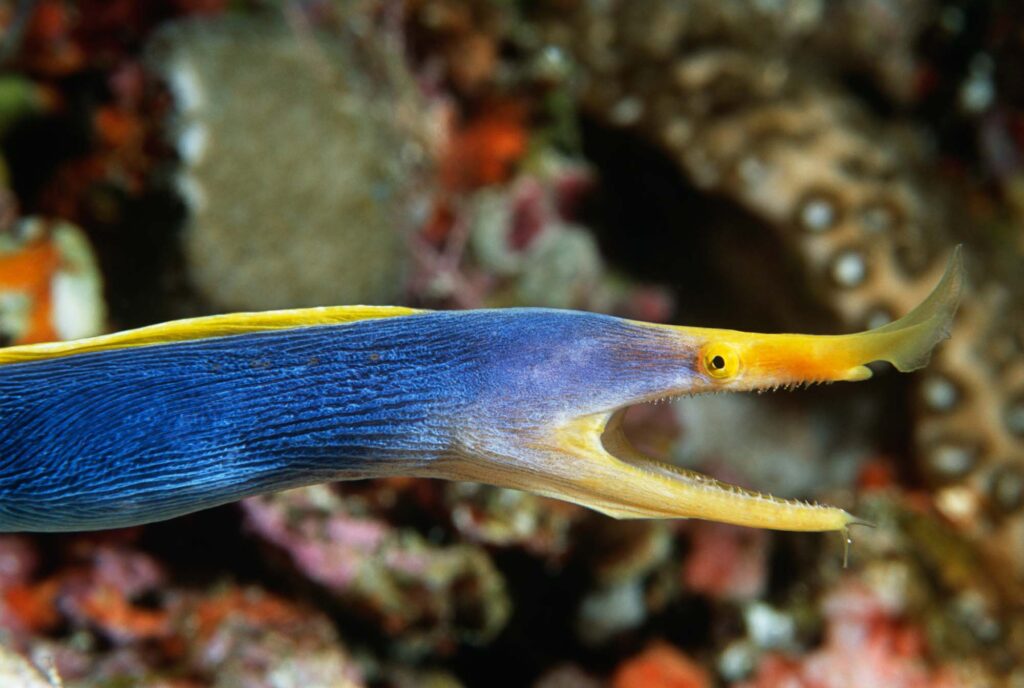
Ribbon Eel – The ribbon eel, also known as the leaf-nosed moray eel or bernis eel, is a species of moray eel.
50. Miami Blue Butterfly
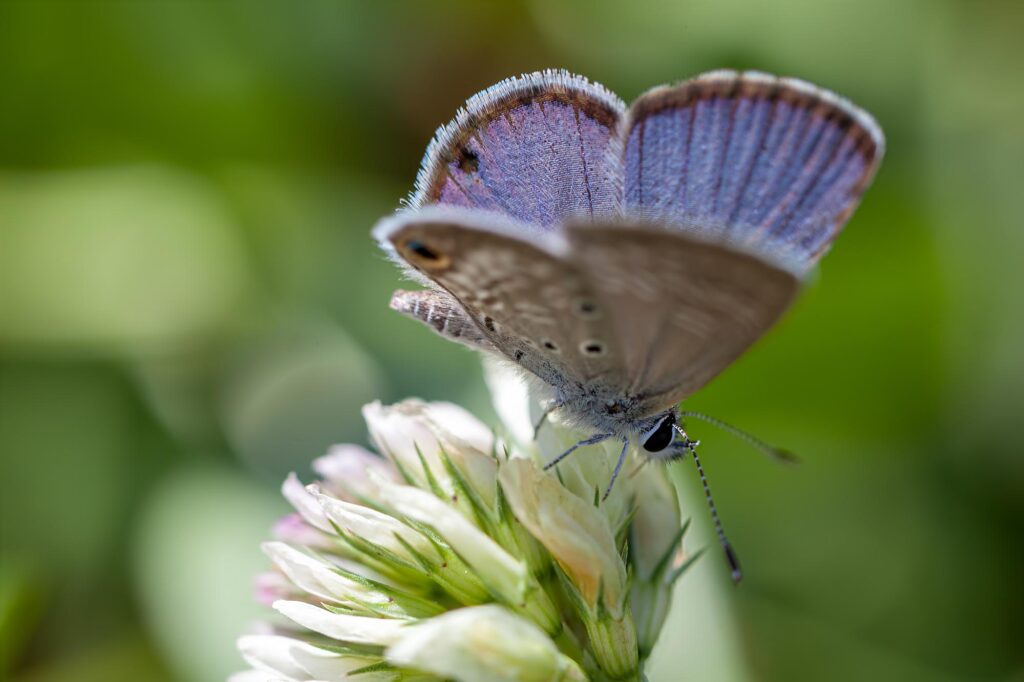
Miami Blue Butterfly – It is a small butterfly that is native to coastal areas of southern Florida.
51. Blue Whale
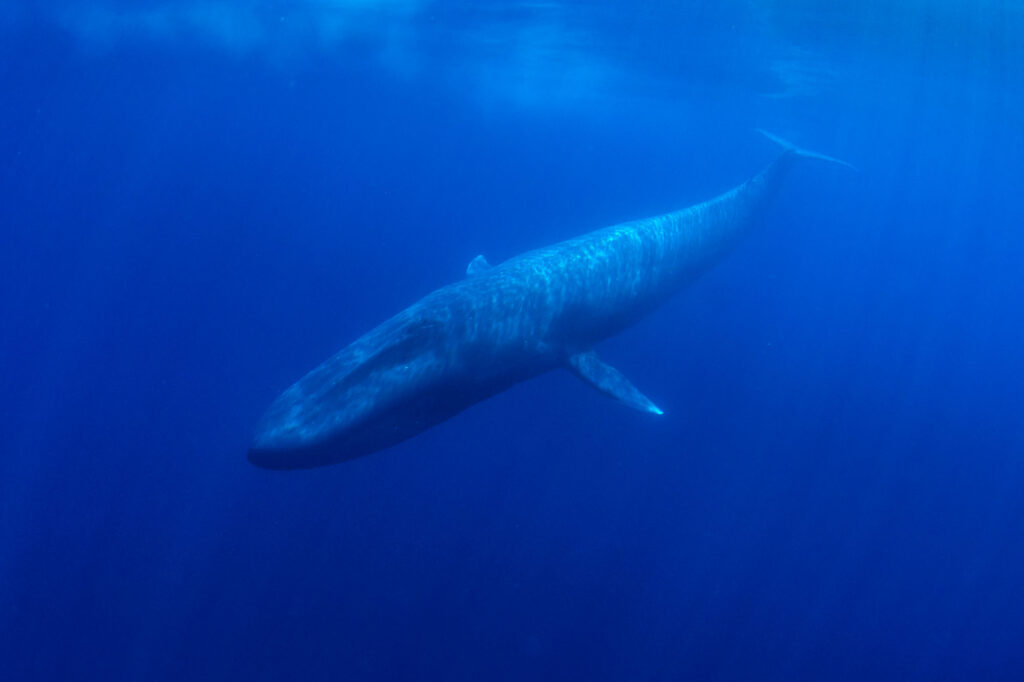
Blue Whale – The world's largest animal reaching 98 feet.
52. Mountain Bluebird
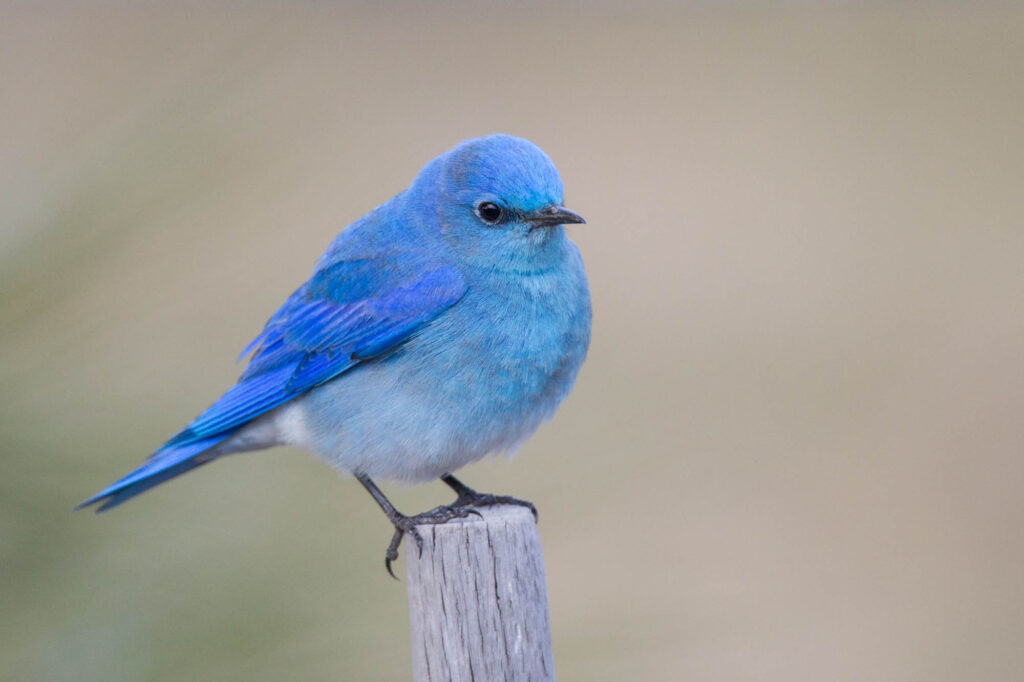
Mountain Bluebird – It is a small migratory bird found in western North America.
53. Blue fly
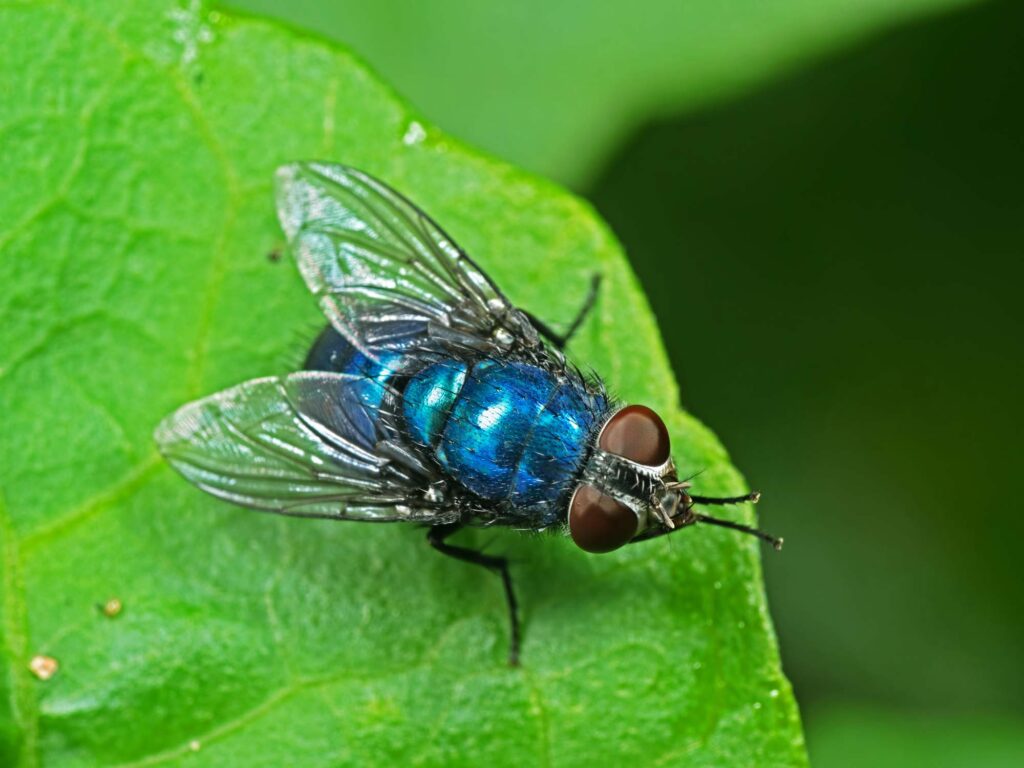
Blue fly – The Blue Bottle Fly or Blue House Fly has a shiny, blue-green carapace and is a bit bigger and considerably louder than the average house fly, which makes for a lot of buzzing.
Foods that are blue
These are natural occurring blue foods.
54. Blueberries

Blueberries – Blueberries are blue fruits that are tasty and packed with nutrients. They're low in calories, high in fiber, and loaded with essential micronutrients.
55. Blackberries
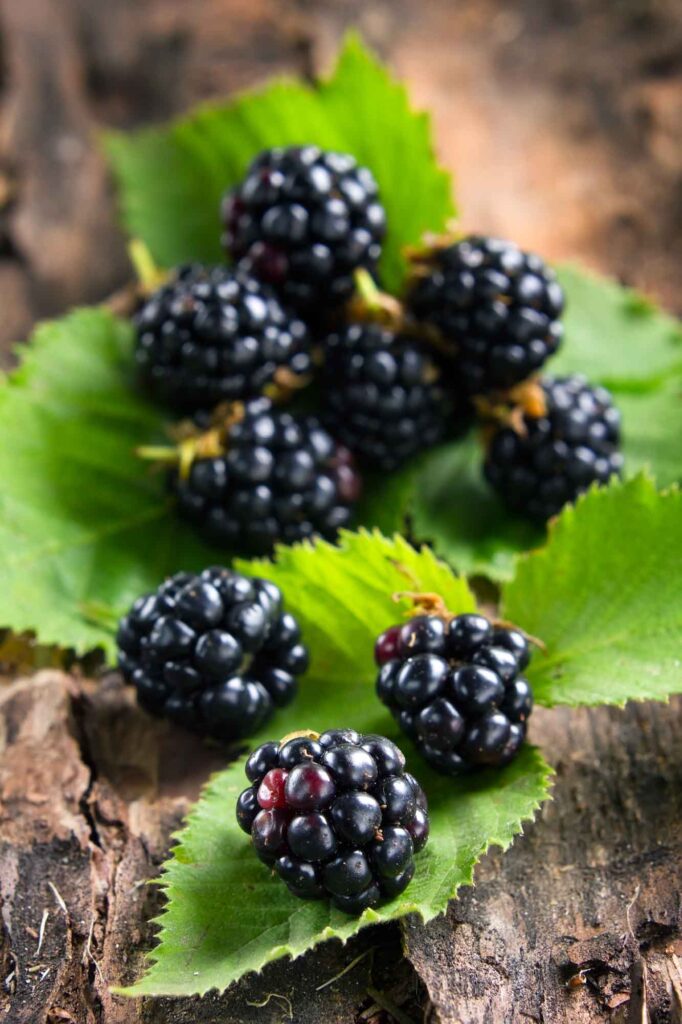
Blackberries – Blackberries are sweet and nutritious dark-blue berries that offer several health benefits.
56. Damson plums
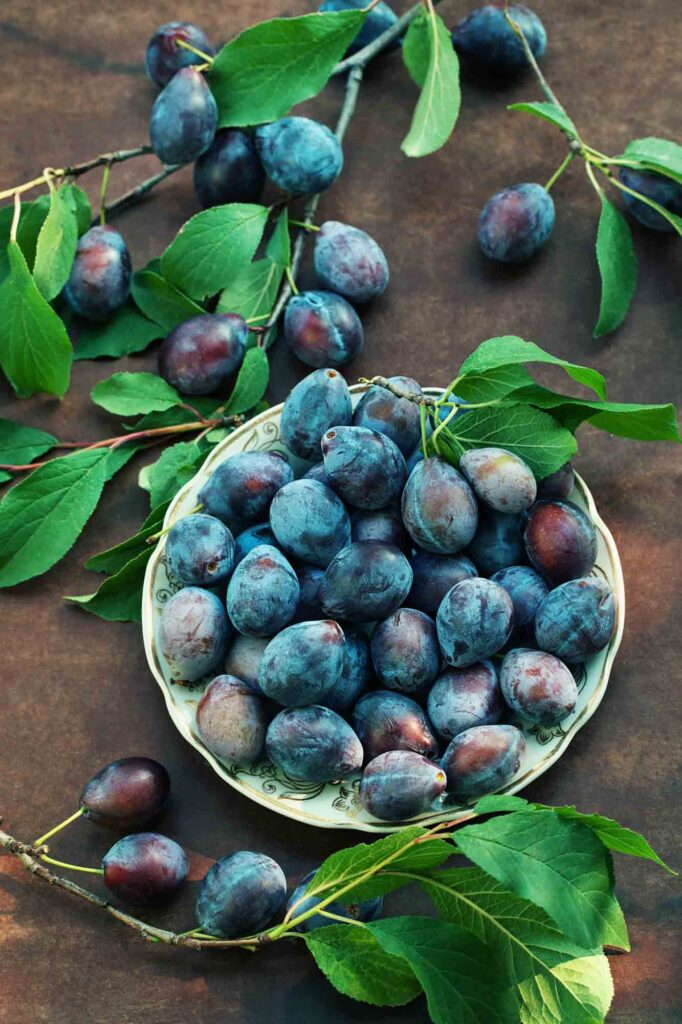
Damson plums – Damsons are blue plums that are often processed into jams and jellies.
57. Elderberries
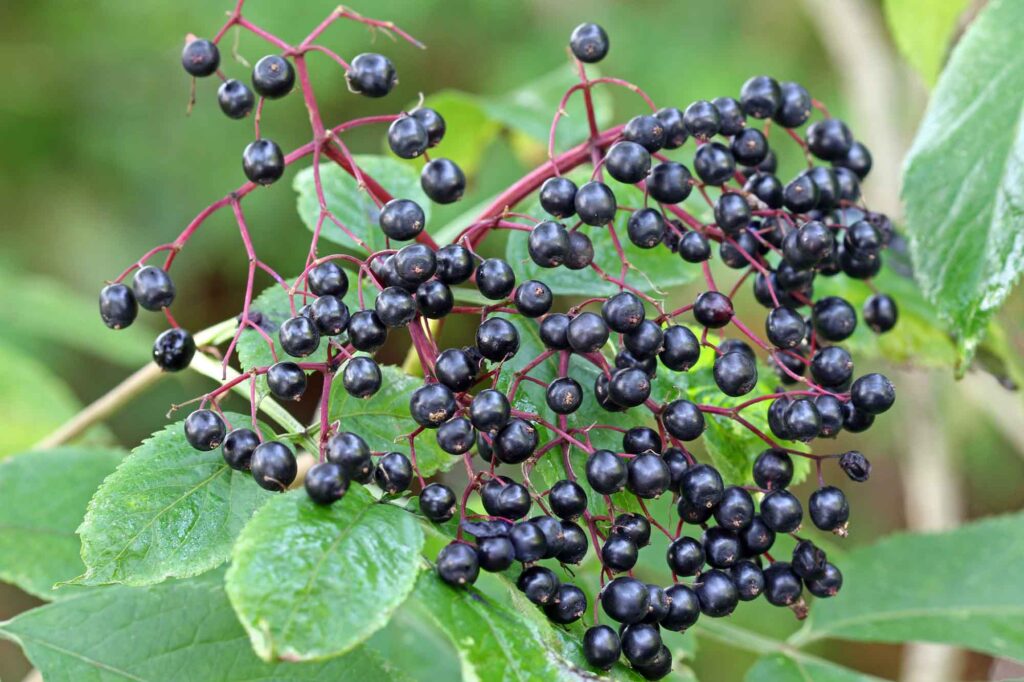
Elderberries – Elderberry is one of the most popular plant remedies worldwide.
58. Concord grapes
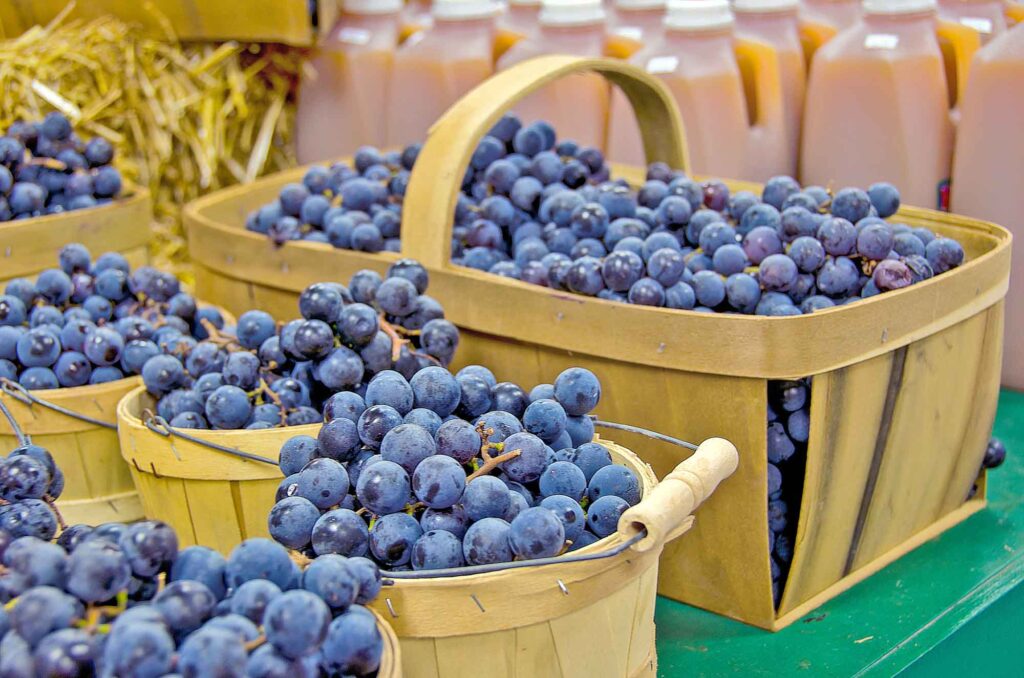
Concord grapes – Concord grapes are a healthy, purple-blue fruit that can be eaten fresh or used to make wine, juices, and jams.
59. Black currants
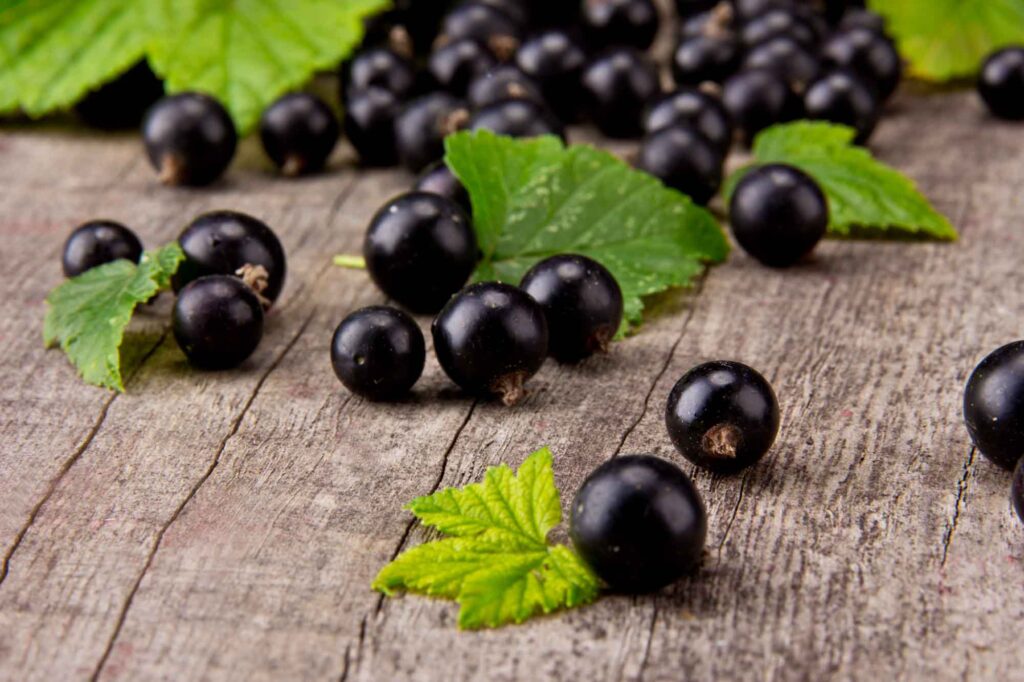
Black currants – Black currants are very tart berries with a deep, bluish-purple hue.
60. Blue tomatoes
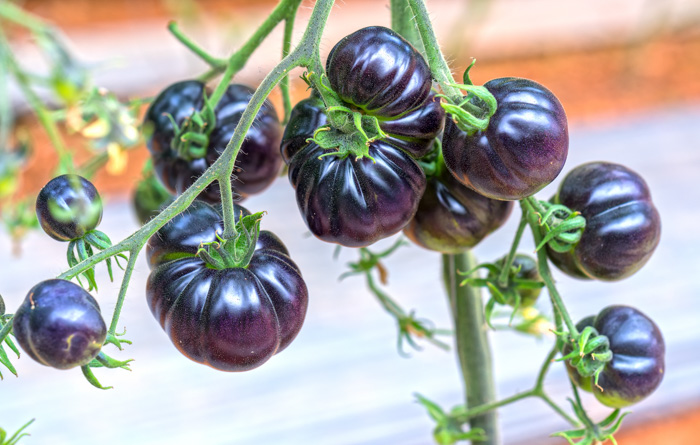
Blue tomatoes – Blue tomatoes, also known as purple or Indigo Rose tomatoes, are grown to be high in anthocyanins.
61. Butterfly Pea Flower
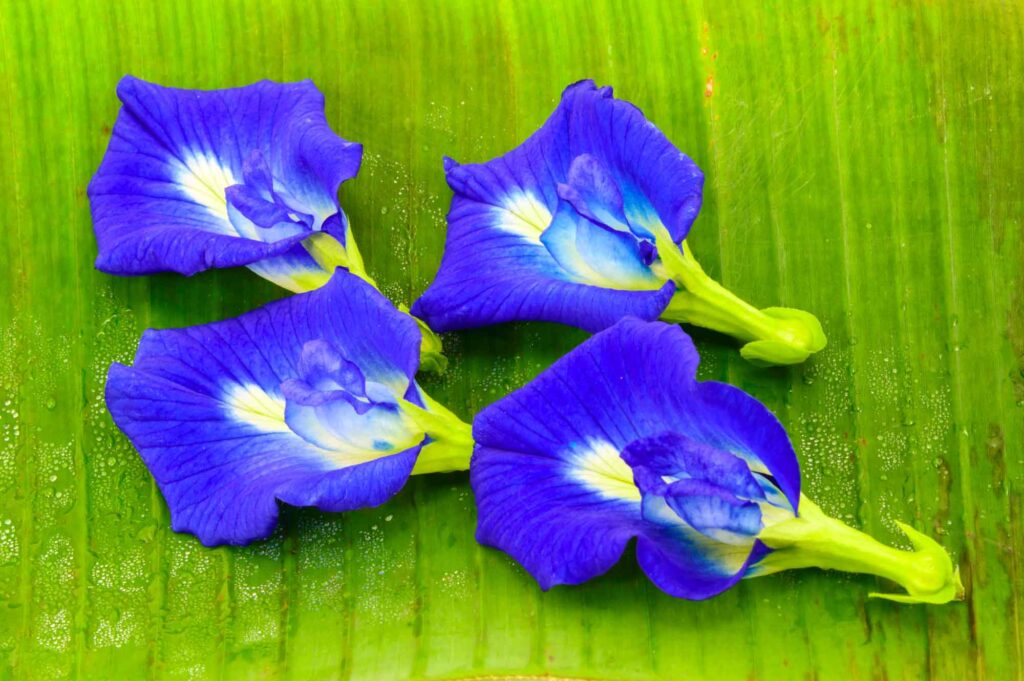
Butterfly Pea Flower – Blue Pea Flowers make a herbal caffeine-free tea.
62. Indigo Milk Cap
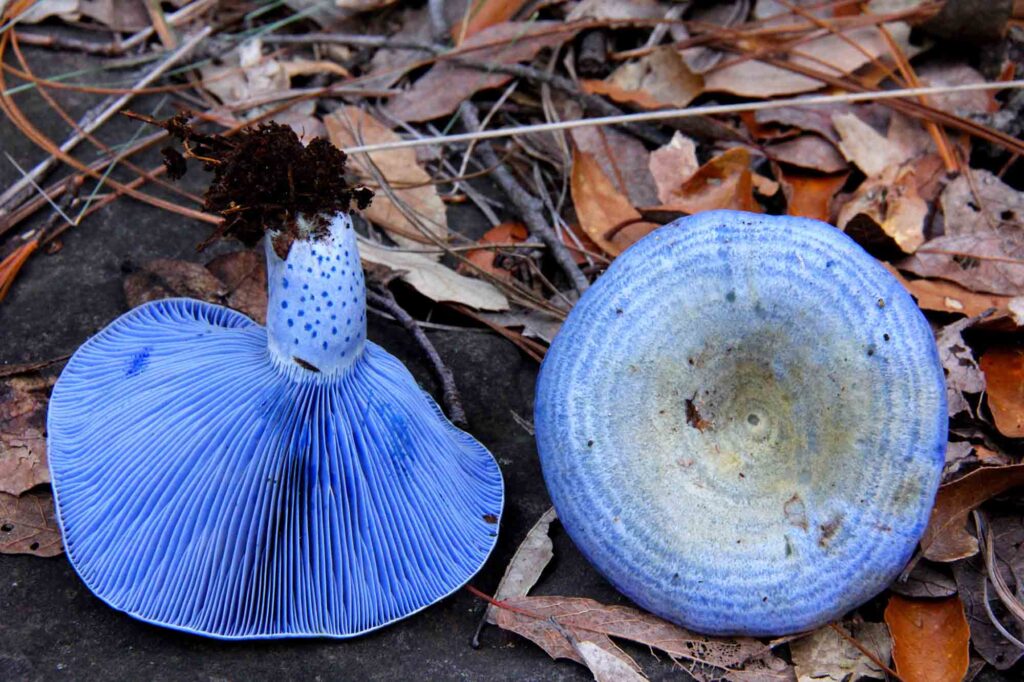
Indigo Milk Cap – Indigo Milk Cap is a blue vegetable native to North America and East Asia. However, many people consider it a second-grade mushroom.
63. Blue Corn
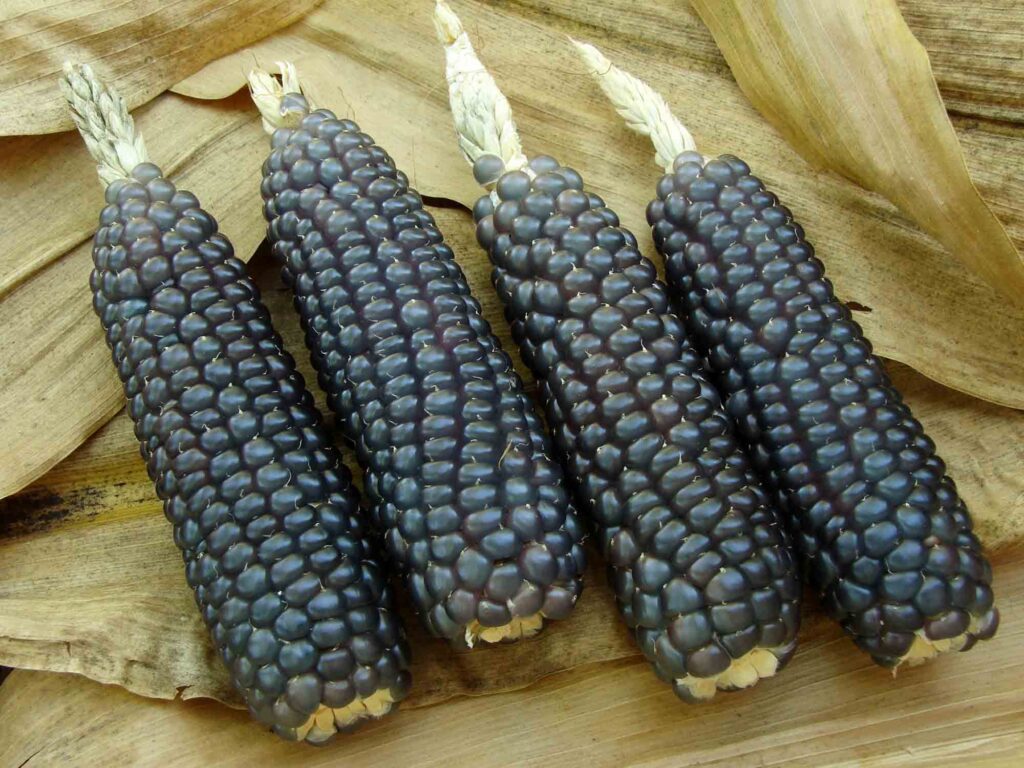
Blue Corn – Blue corn is one of the main types of corn used for the traditional Southern and Central Mexican food known as tlacoyo.
Blue plants
This is a list of blue flowers and plants that you can find around the world!
64. Flax Flower
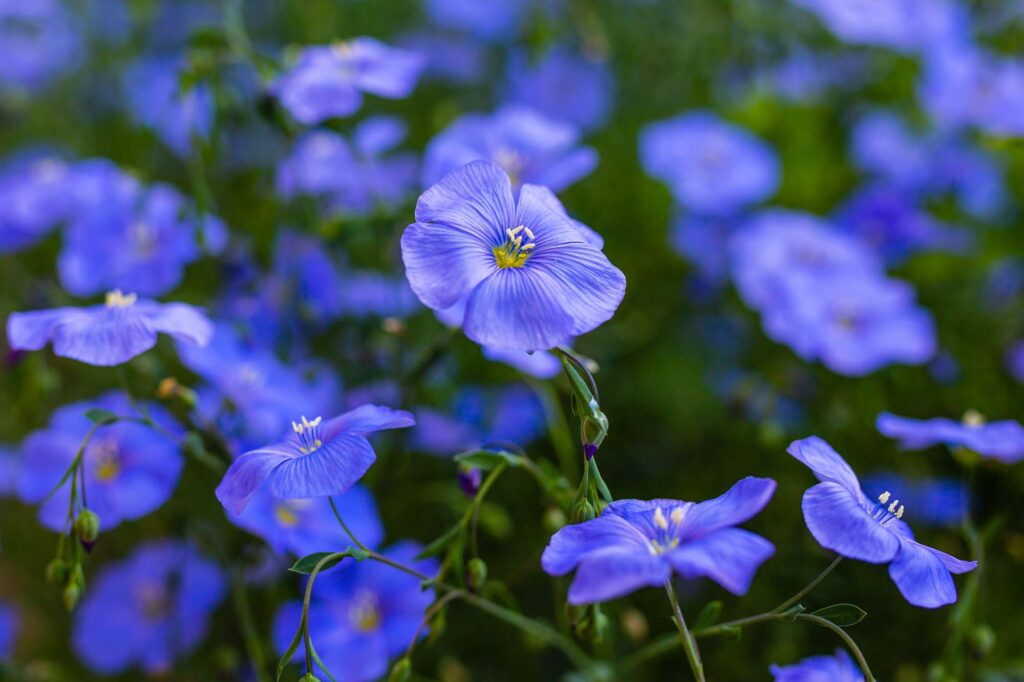
Flax Flower – It's a beautiful blue flower, but some species might have other colors.
65. Morning Glory
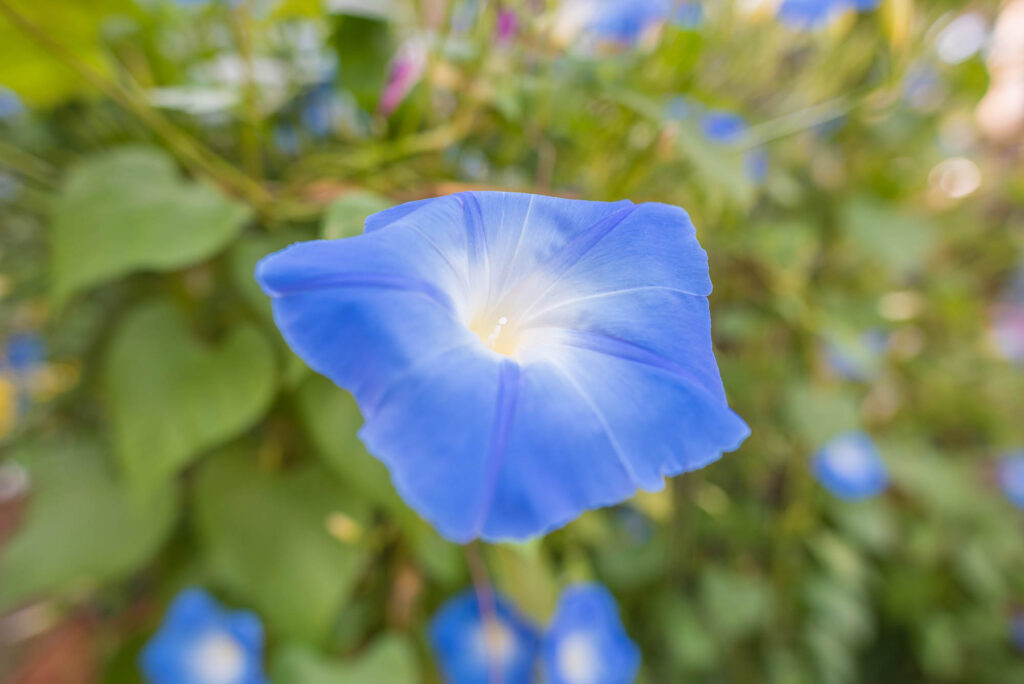
Morning Glory – These blue flowers bloom from early summer to the first frost of fall.
66. Campanula
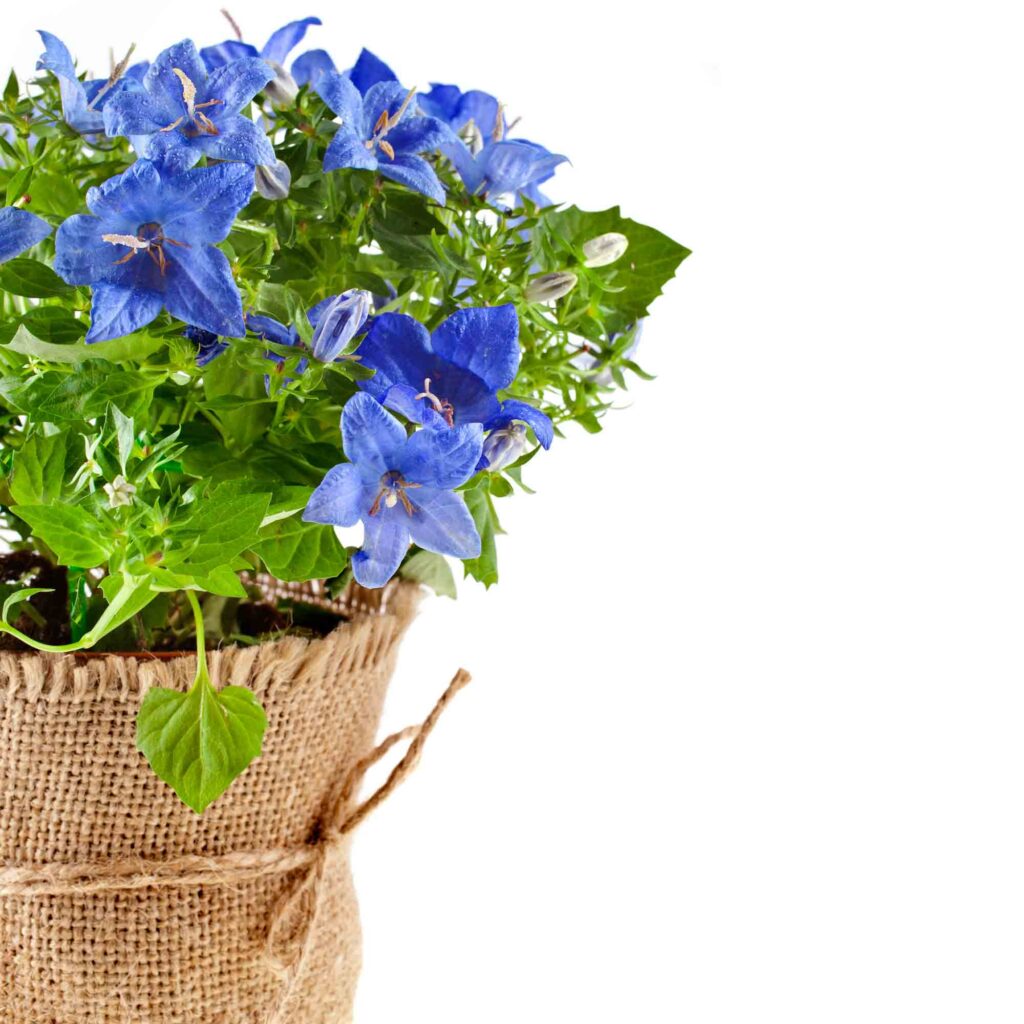
Campanula – Campanula Bellflowers are plants that span several sizes and colors, including blue.
67. Grape Hyacinth
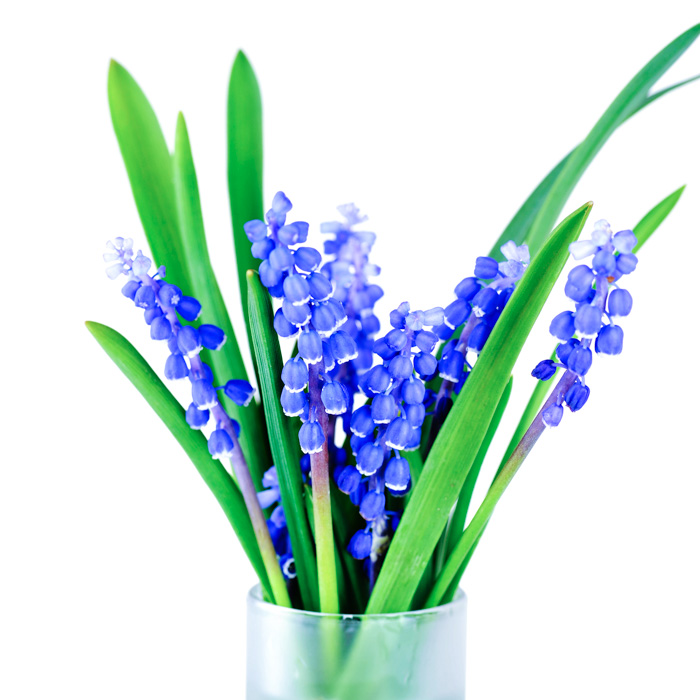
Grape Hyacinth – It is a mid-spring blooming bulb native to southeastern Europe.
68. Aster
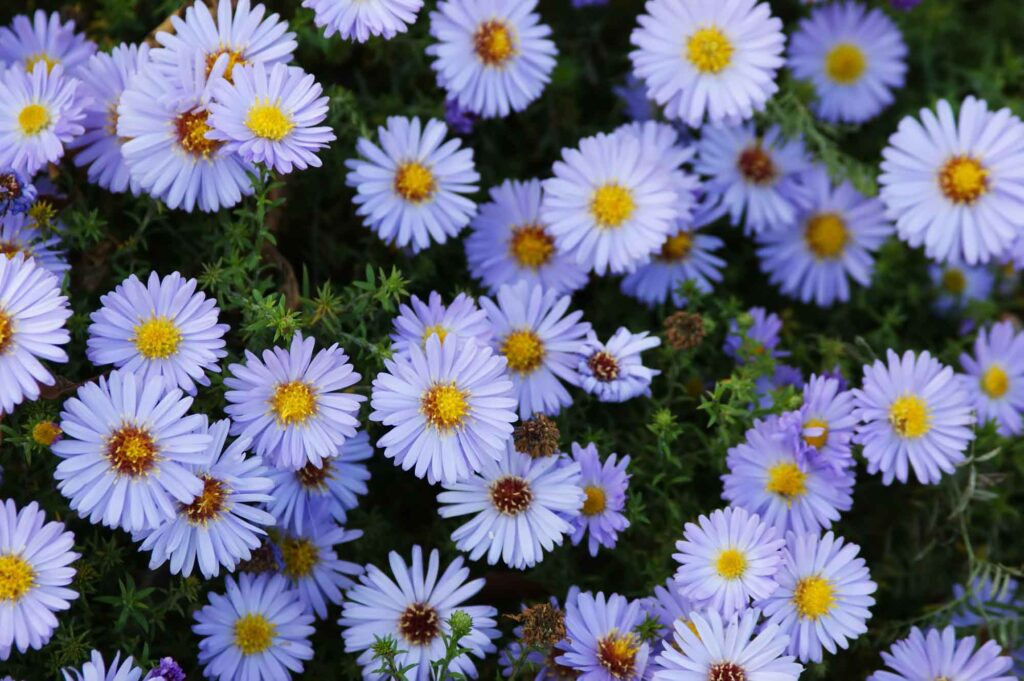
Aster – Also known as Lady in Blue, these flowers bloom later in the season.
69. Sea Holly
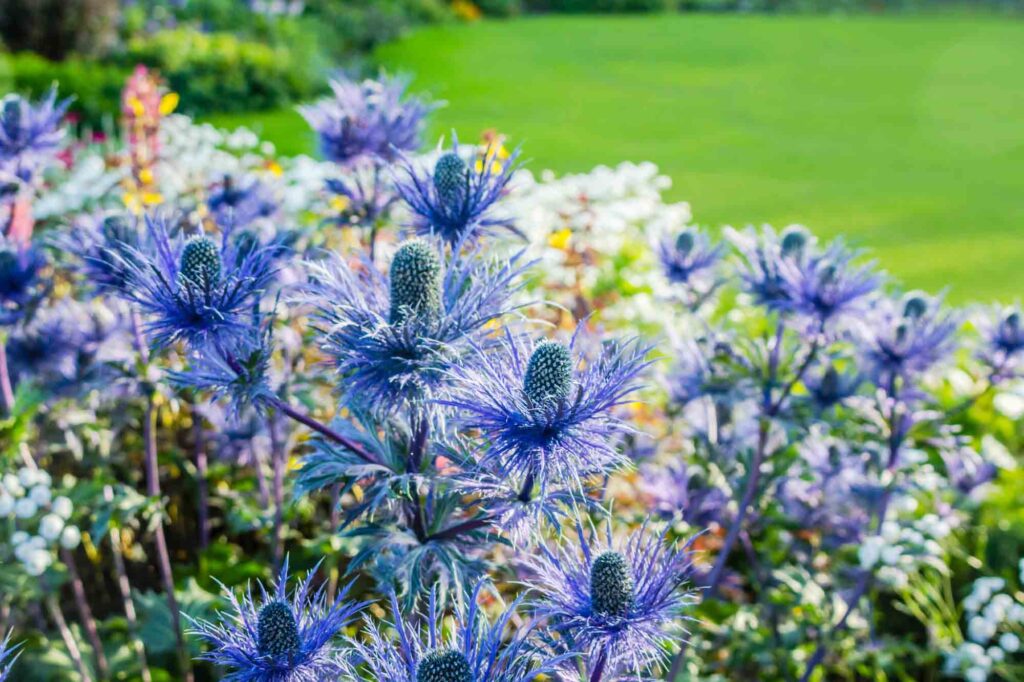
Sea Holly – This eye-catching flower has an egg-shaped head.
70. Glory of the Snow
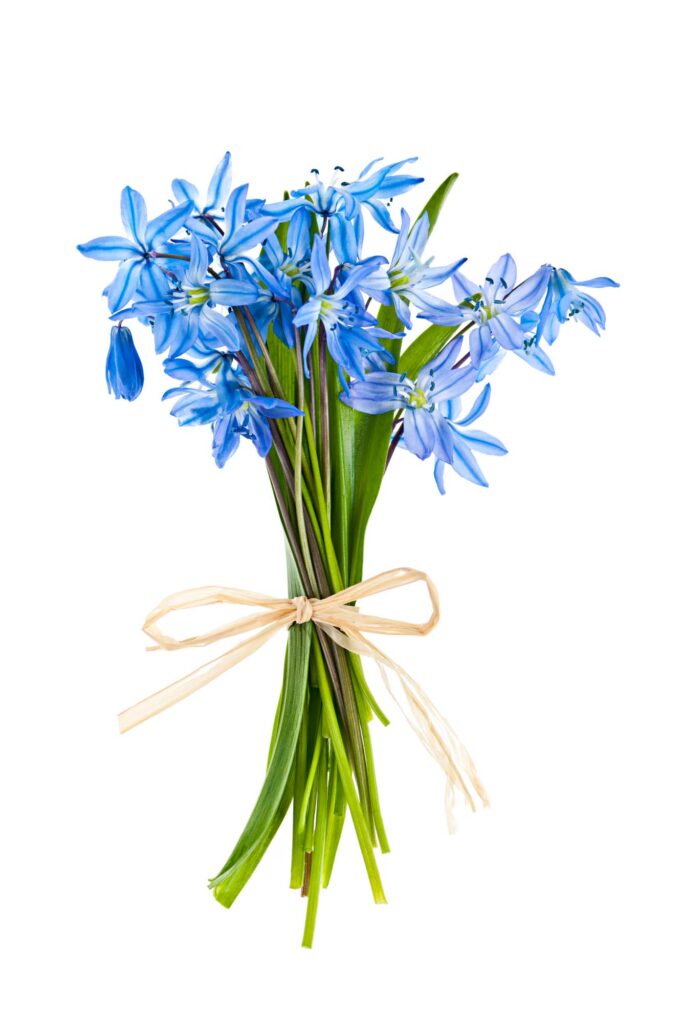
Glory of the Snow – One of the earliest and loveliest spring-flowering bulbs, the Glory of the Snow has compact spikes of white-eyed, bright blue flowers.
71. Lupine
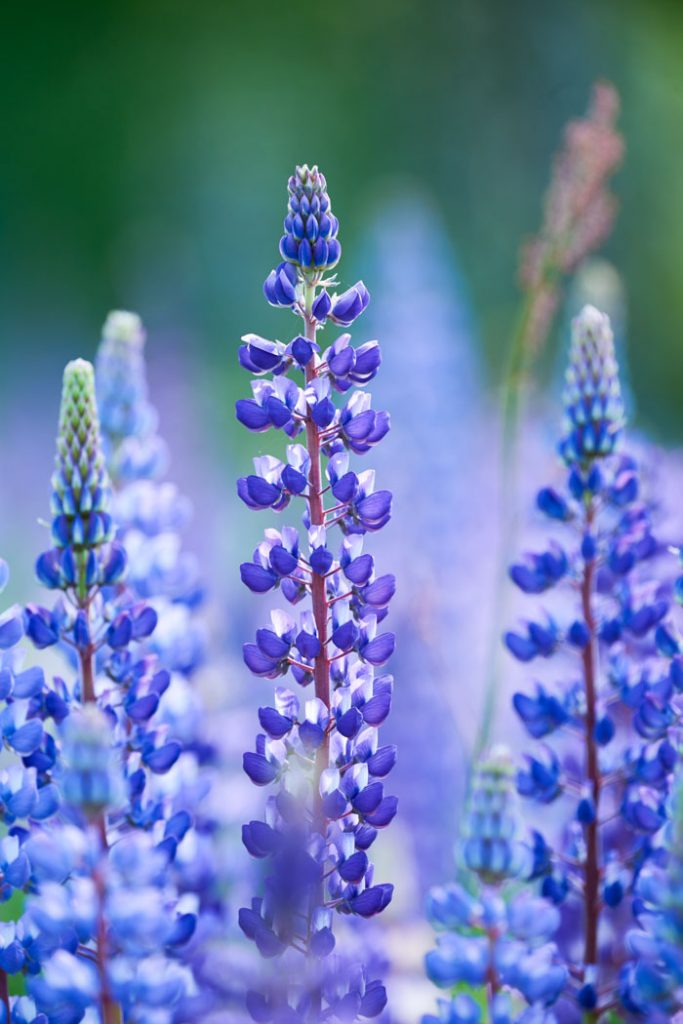
Lupine – These flowers can bloom in different colors, including blue.
72. Starflower
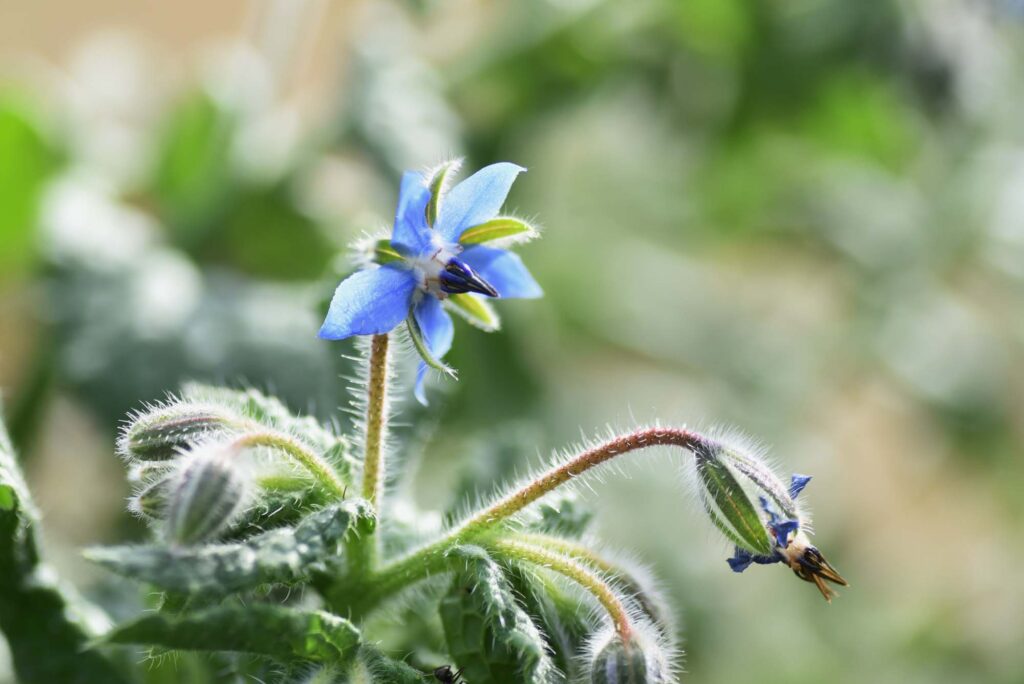
Starflower – Also known as borage, this plant is a small blue flower with sweetly scented flowers.
73. Gentian
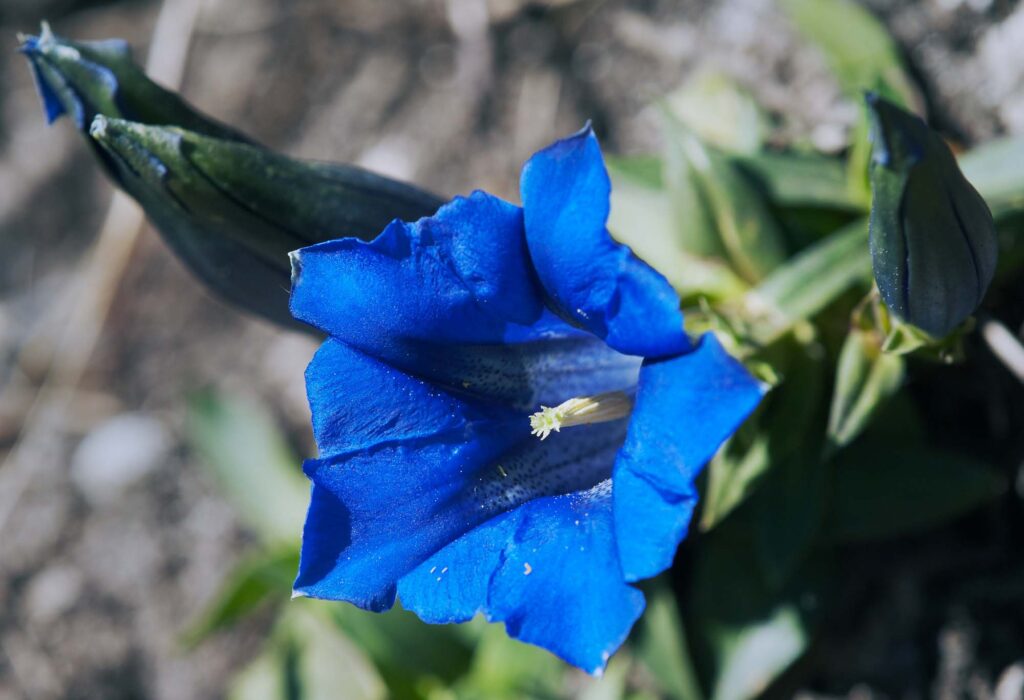
Gentian – These beautiful flowers have a deep blue or azure color.
74. Love-in-a-Mist
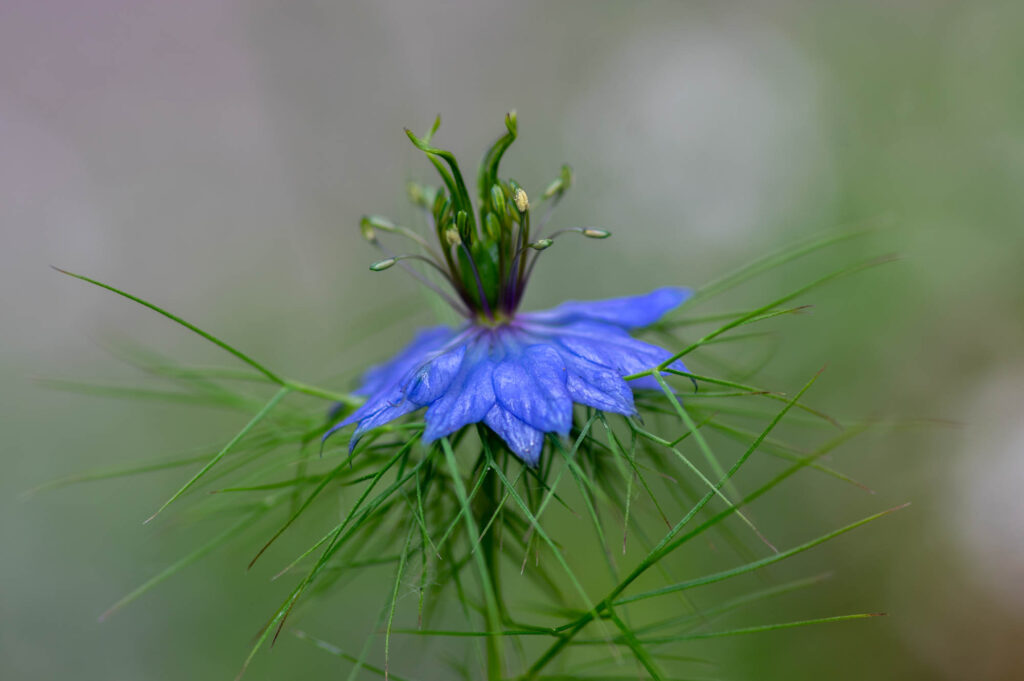
Love-in-a-Mist – Also known as Nigella Damascena, this whimsical annual blooms in spring and can grow in a variety of soil types but prefers rich, fertile soil.
75. Myosotis
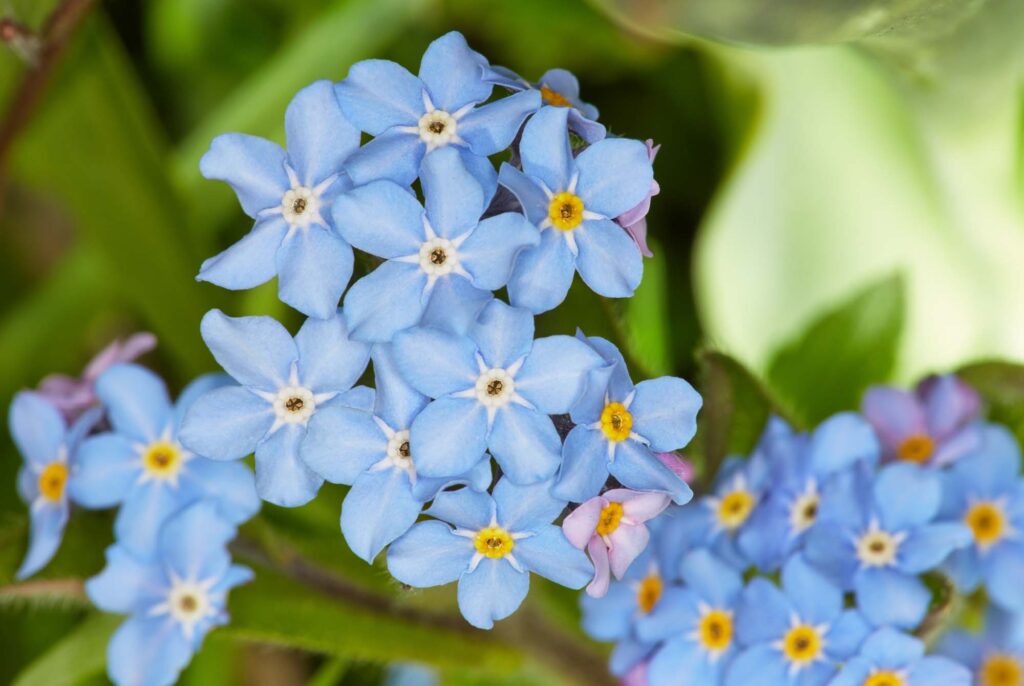
Myosotis – Also known as forget-me-nots, these flowers have bright sky-blue petals and a tiny yellow eye.
76. Agapanthus
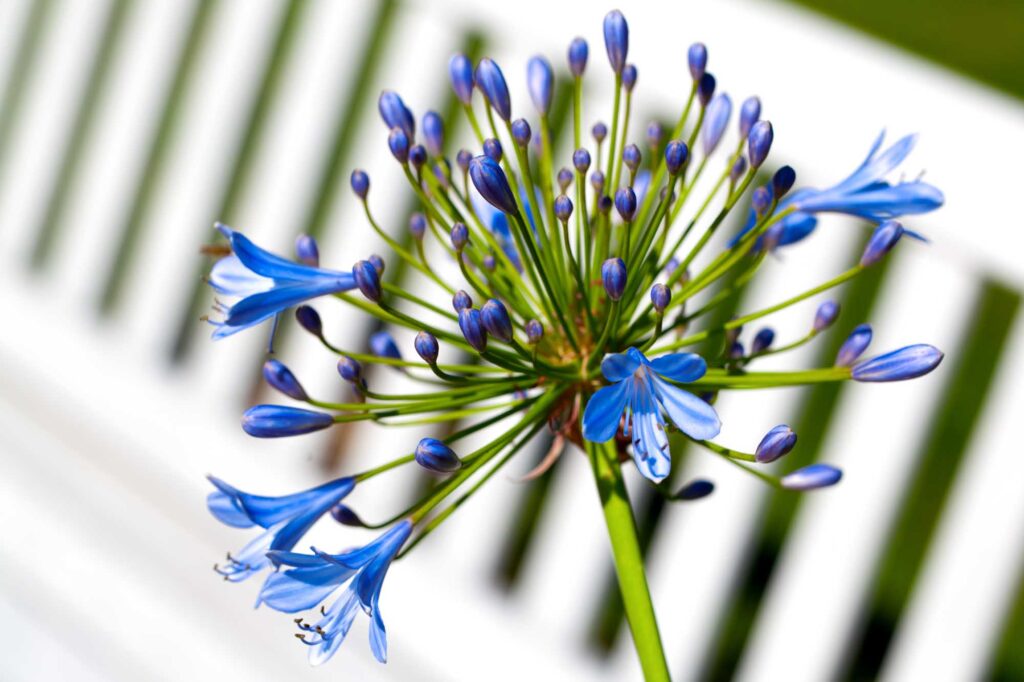
Agapanthus – This African Lily has violet-blue flowers.
77. Freesia
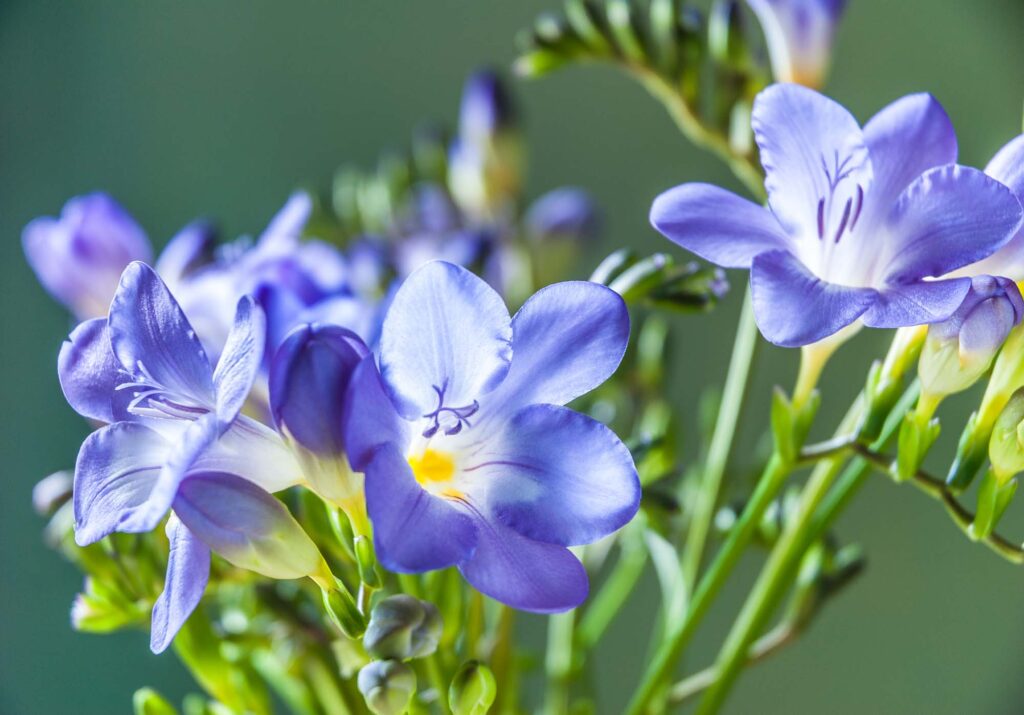
Freesia – Freesia flowers come in many colors and grow in a large, upwards-facing funnel shape. It grows from Kenya to South Africa, although it's often cultivated in other places.
78. Columbine Flower
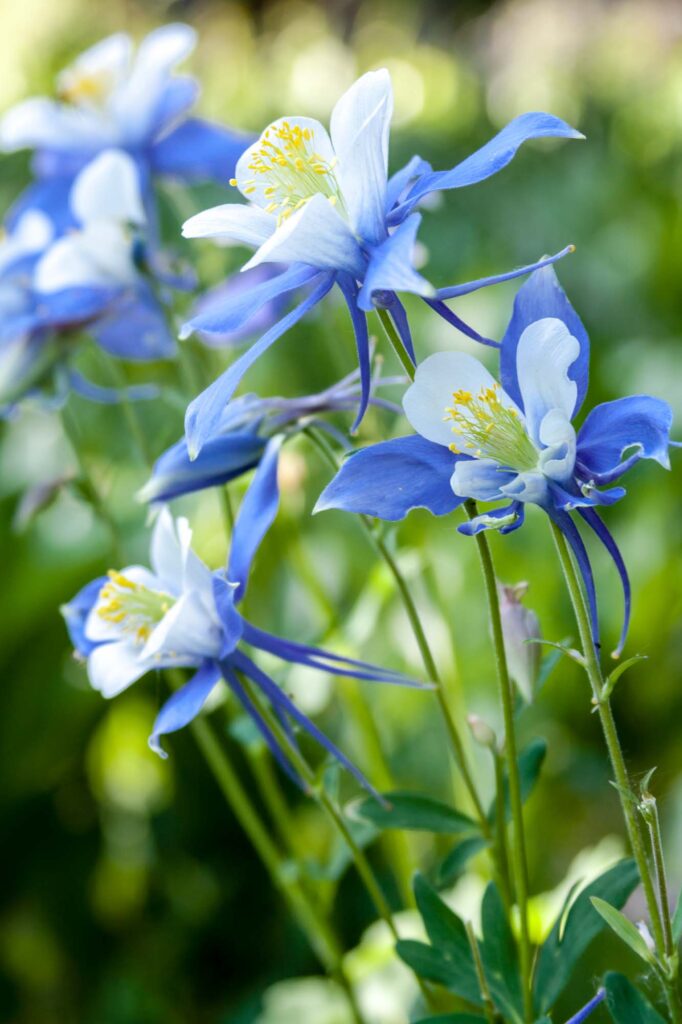
Columbine Flower – The columbine plant (Aquilegia) is an easy-to-grow perennial that offers seasonal interest throughout much of the year.
79. Common bluebells
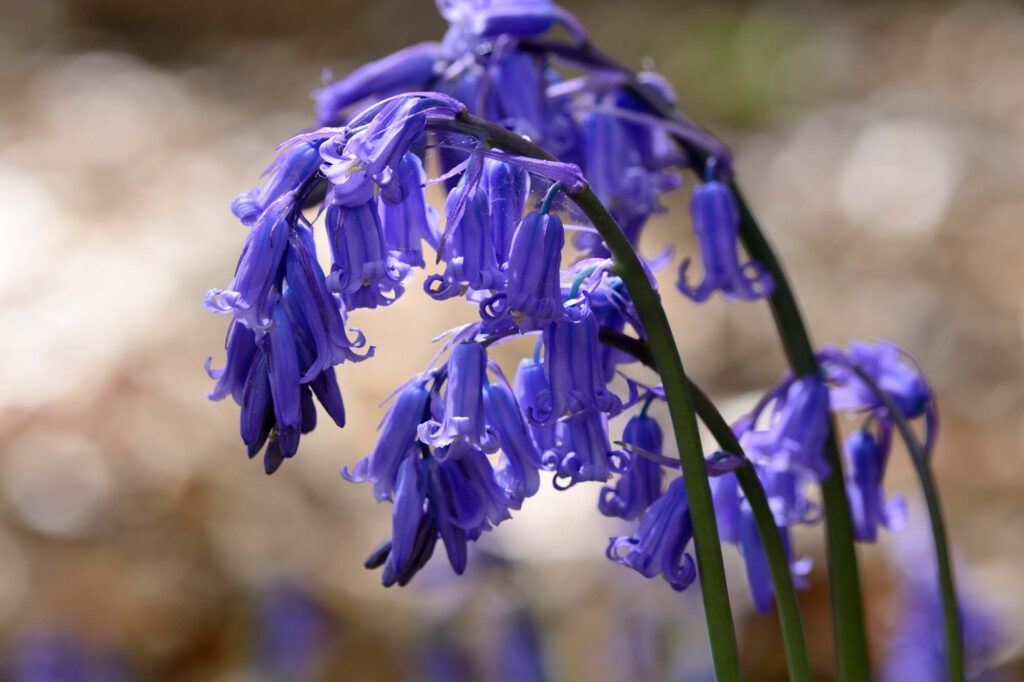
Bluebells – Bluebells flower in colors ranging from white (quite common), through to grey, pale blue, lilac to dark cobalt.
80. Delphinium
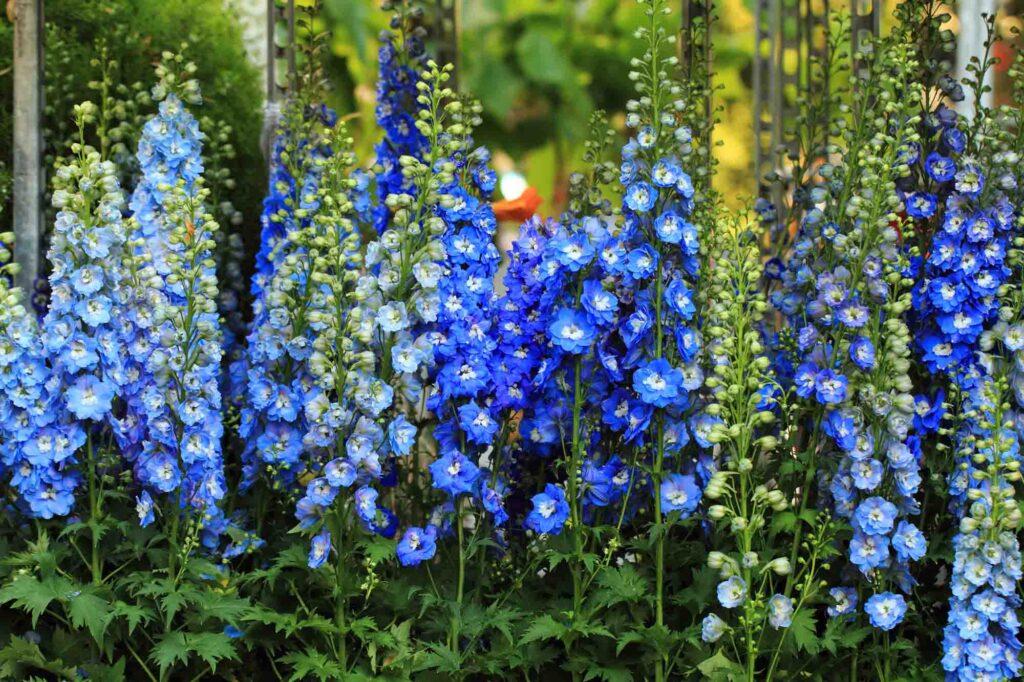
Delphinium – Delphiniums are perennials grown for their showy spikes of colorful summer flowers in gorgeous shades of blue, pink, white, and purple. They are very similar to lupine flowers.
81. Veronica Flower
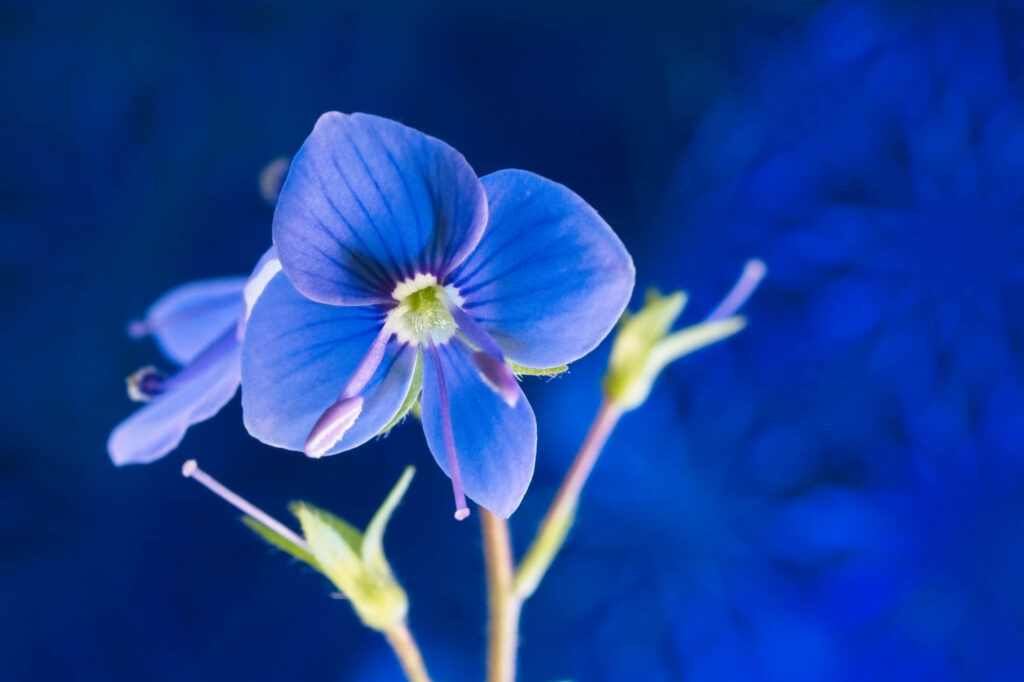
Veronica Flower – Highly popular, Veronica 'Sunny Border Blue' (Spike Speedwell) is a bushy, upright, clump-forming perennial producing dense, slender spikes of star-shaped, vivid violet-blue flowers from midsummer to fall.
82. Iris
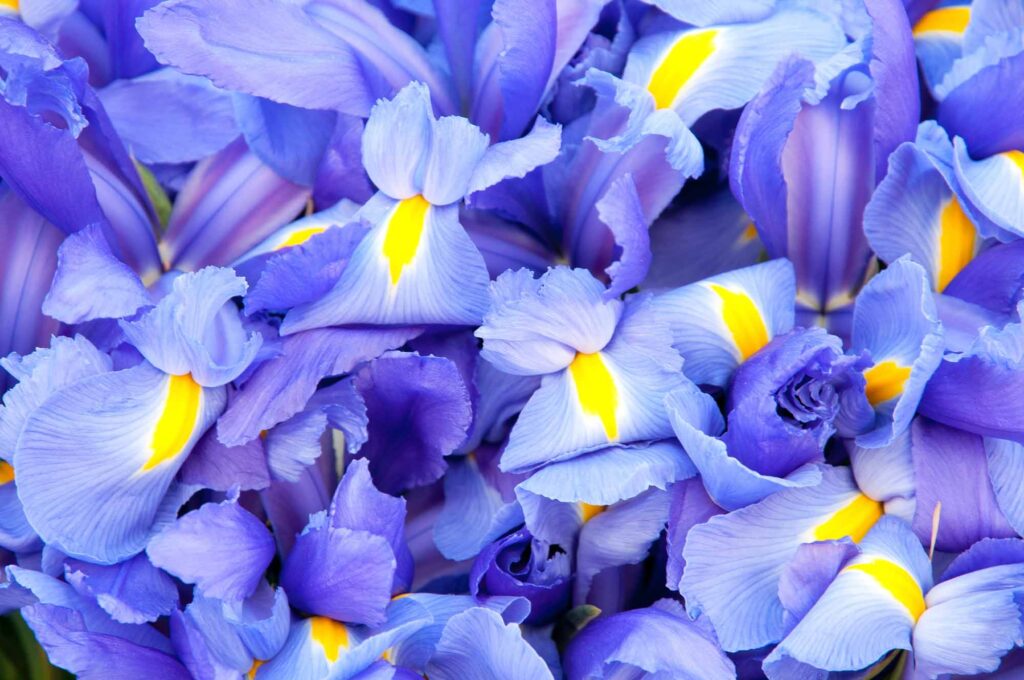
Iris – The tall, beautiful iris, named after the Greek goddess who rode rainbows, comes in many magical colors, including blue.
83. Periwinkle
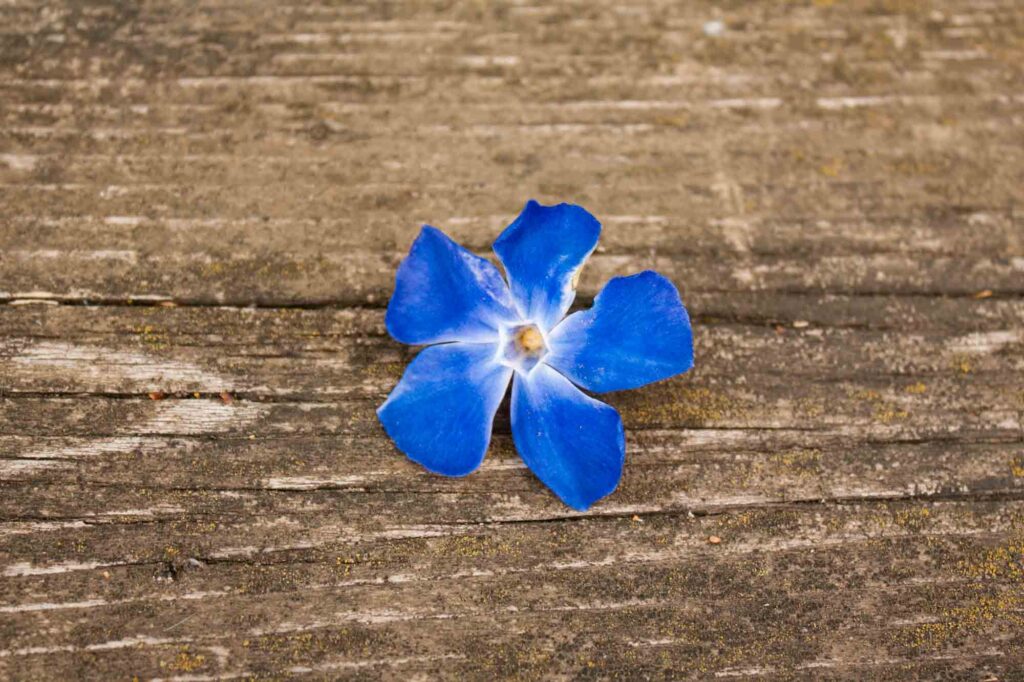
Periwinkle – Periwinkle is a color in the blue and violet family. Its name is derived from the lesser periwinkle or myrtle herb (Vinca minor) which bears flowers of the same color.
84. Pansy
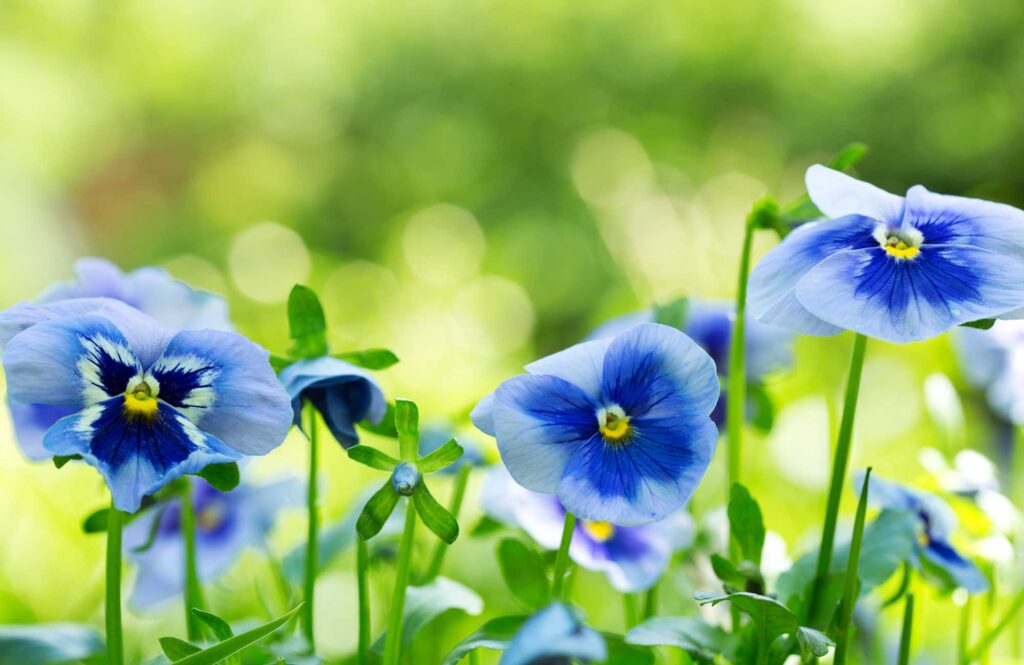
Pansy – Also known as the Cool Wave Violet Wing, their colors can intensify your fall garden as few other flowers can. They have a violet-blue color.
85. Hydrangea
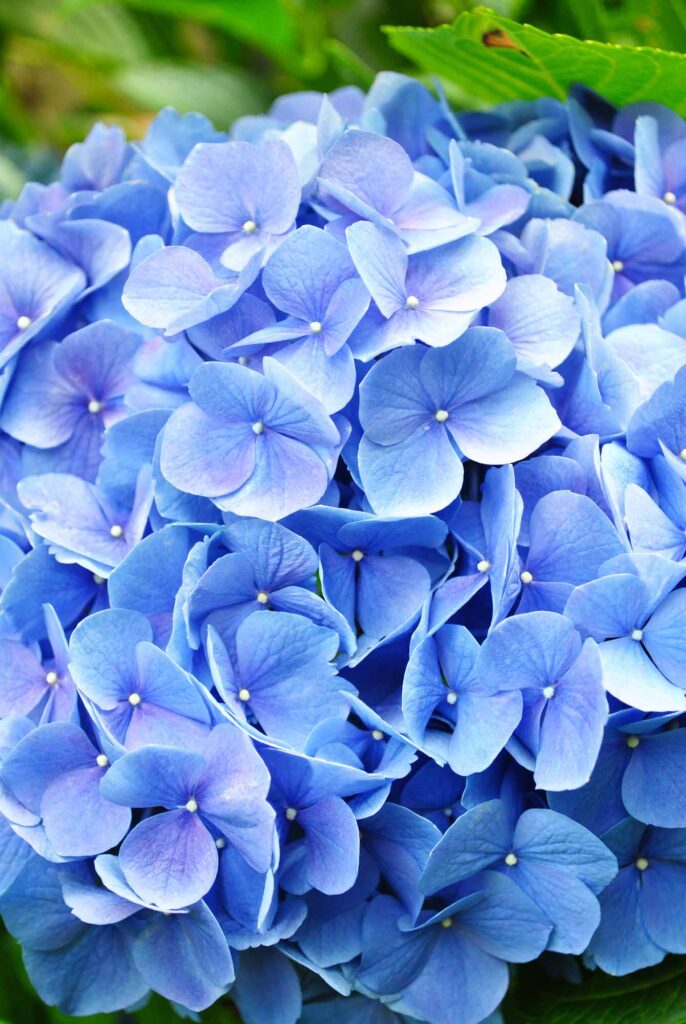
Hydrangea – Hydrangeas change color (except for the white ones) based on the pH level of their soil. The more acidic the soil, the bluer the flowers.
86. Hyacinth

Hyacinth – Extremely fragrant, Hyacinth 'Blue Star' features densely flowered spikes of soft blue flowers with slightly paler edges.
87. Anemone Flower
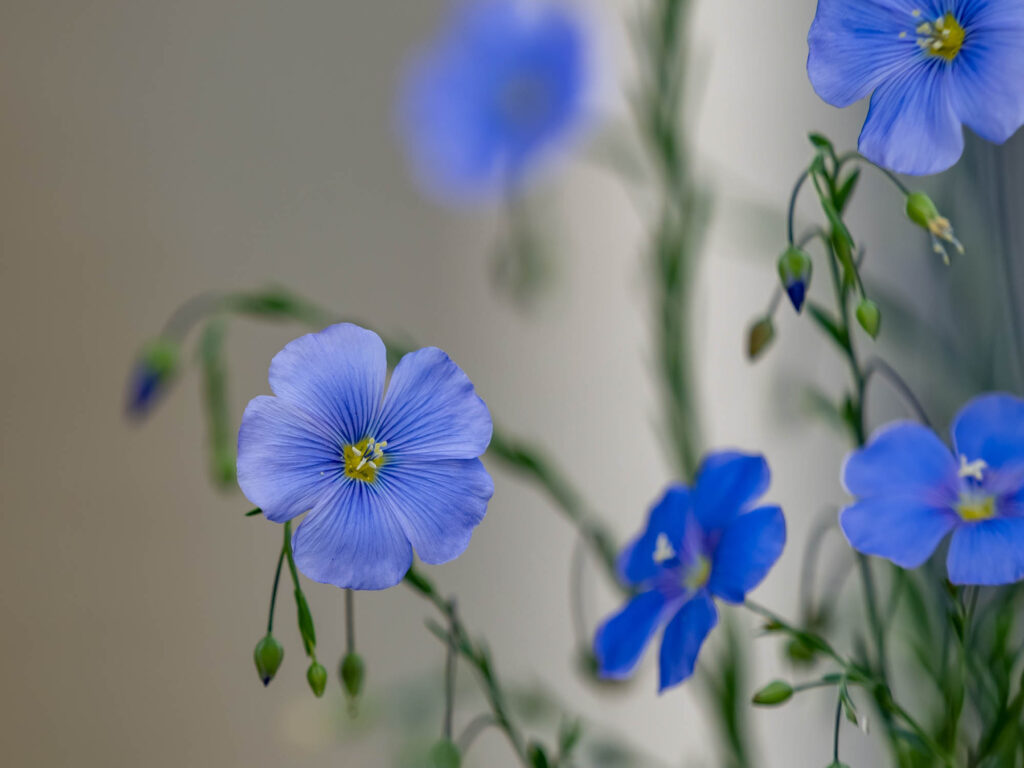
Anemone Flower – Anemone coronaria 'Blue Poppy' features satiny, violet-blue, poppy-like flowers adorned with a dark button center.
88. Hibiscus
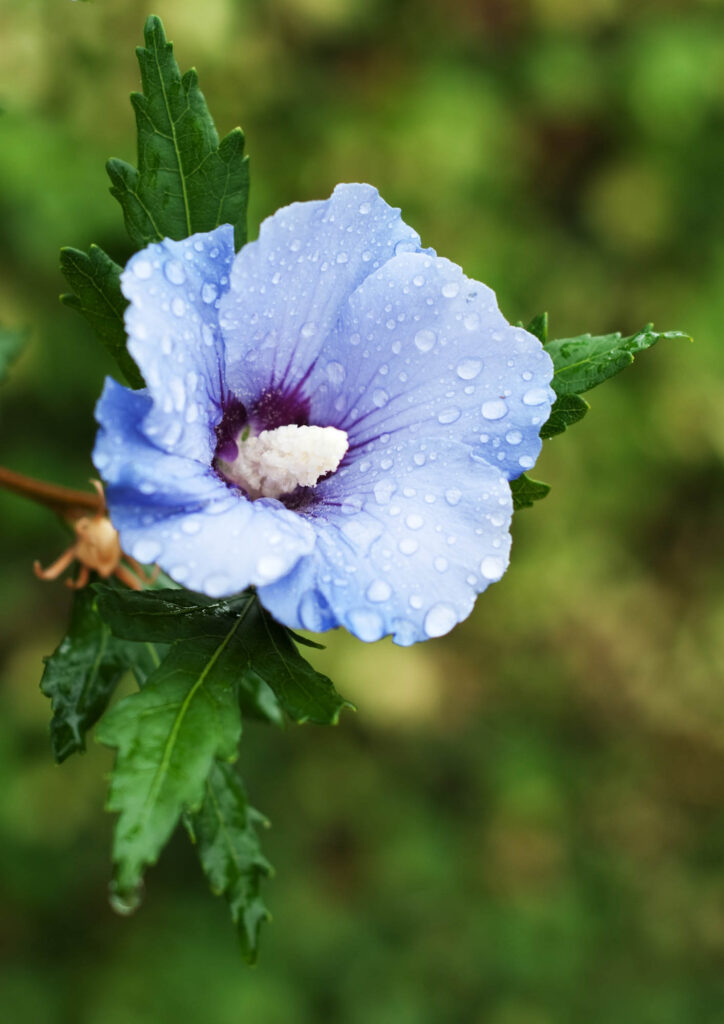
Hibiscus – Not as popular as the red flower, blue hibiscus grow on and off all year.
89. Cornflower
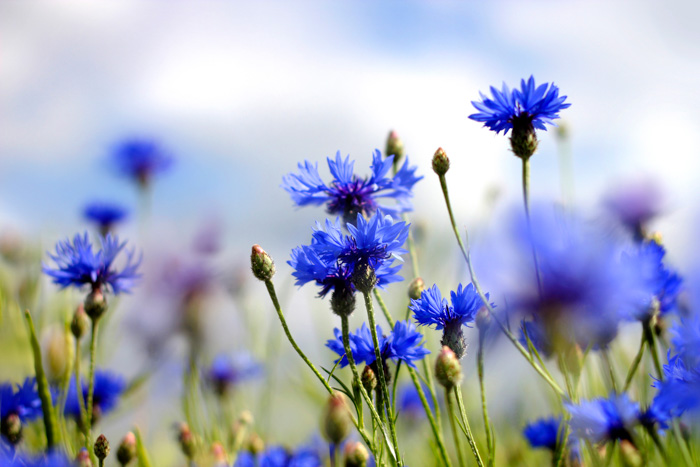
Cornflower – The blue cornflower has been the national flower of Estonia since 1918 and symbolizes daily bread to Estonians.
90. Geranium
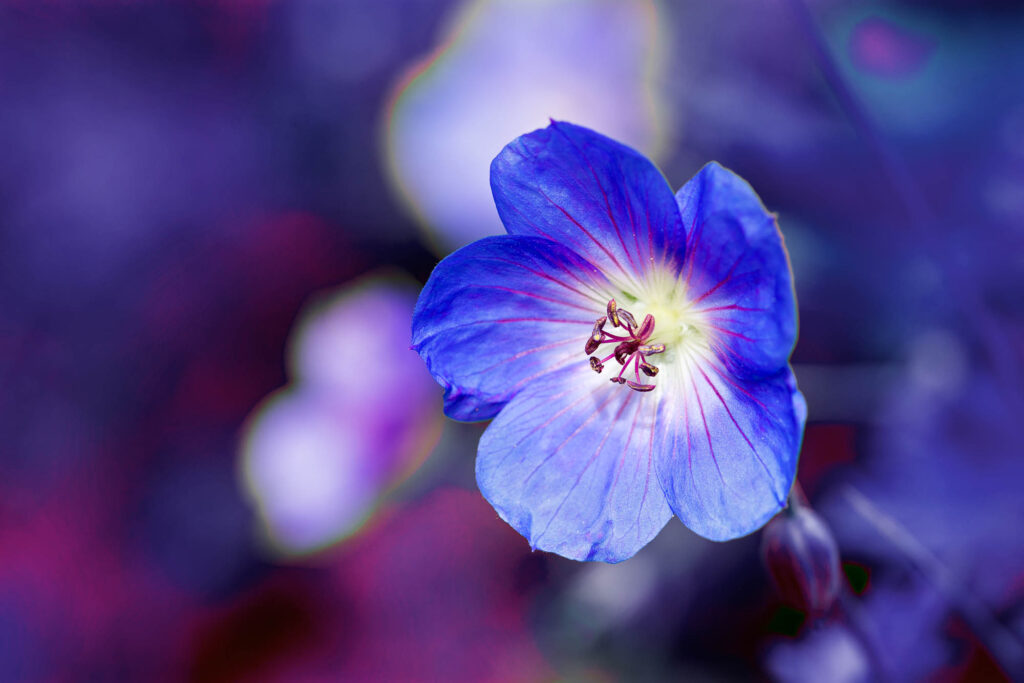
Geranium – Geranium 'Johnson's Blue' is a fantastic cranesbill geranium, bearing masses of large, dark-veined, lavender-blue flowers that fade to pearl grey as they mature.
91. Clematis
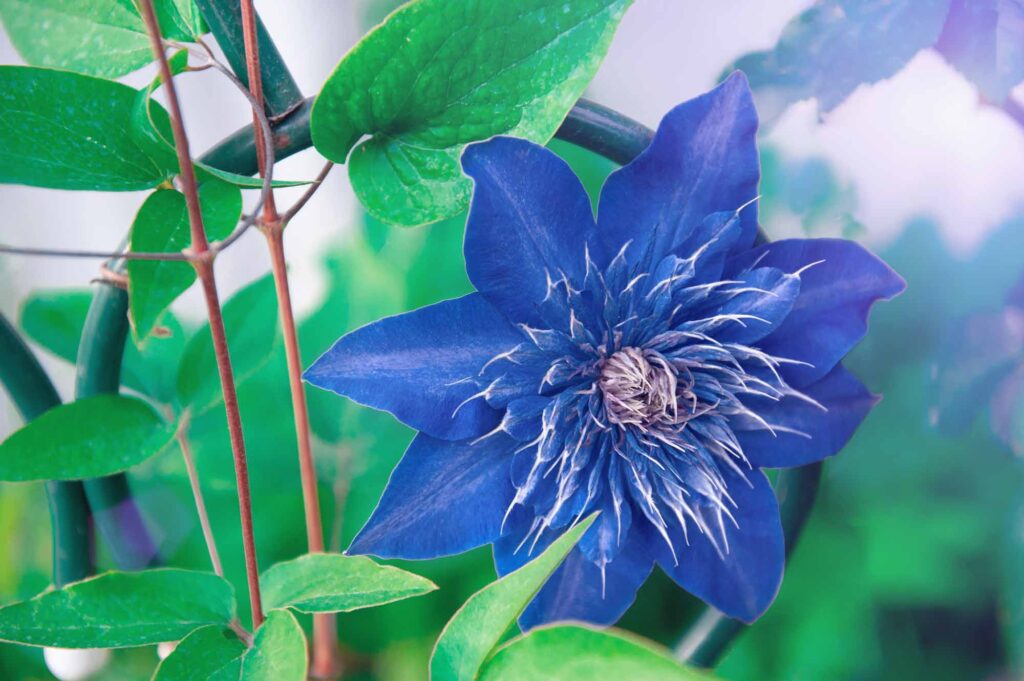
Clematis – Incredibly glamorous, Clematis 'Multi Blue' is a deciduous climber that produces a profusion of stunning deep blue, double flowers.
92. Monkshood
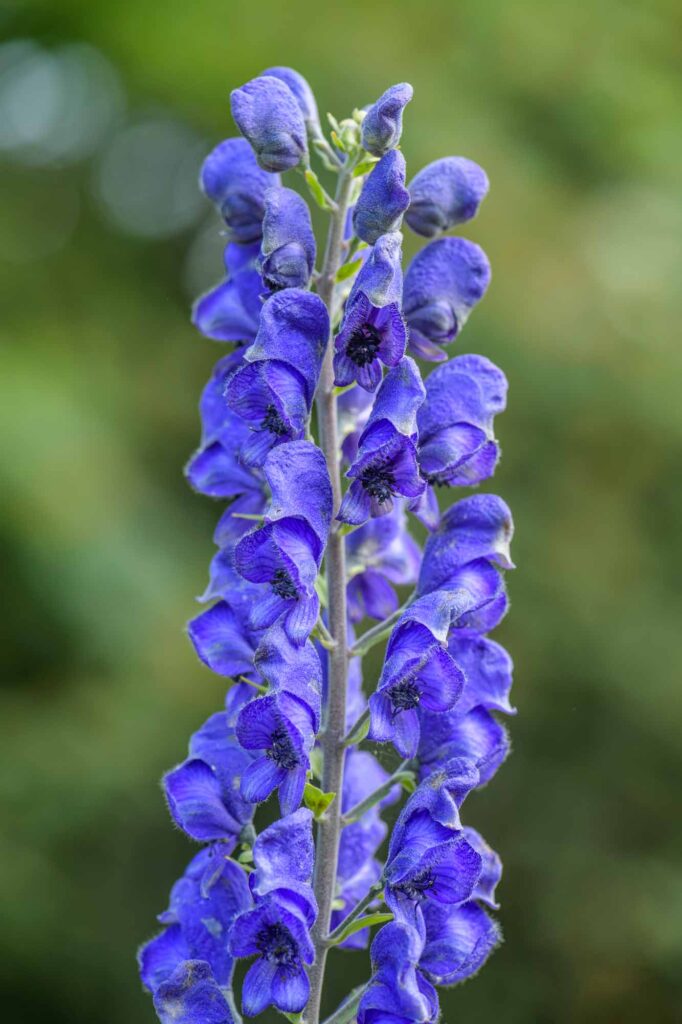
Monkshood – With pale blue flowers growing on long stalks, Monkshood is also known as Wolf's Bane or Aconite. It's also one of the most poisonous plants on the planet, dangerous both to humans and animals alike.
93. Chicory
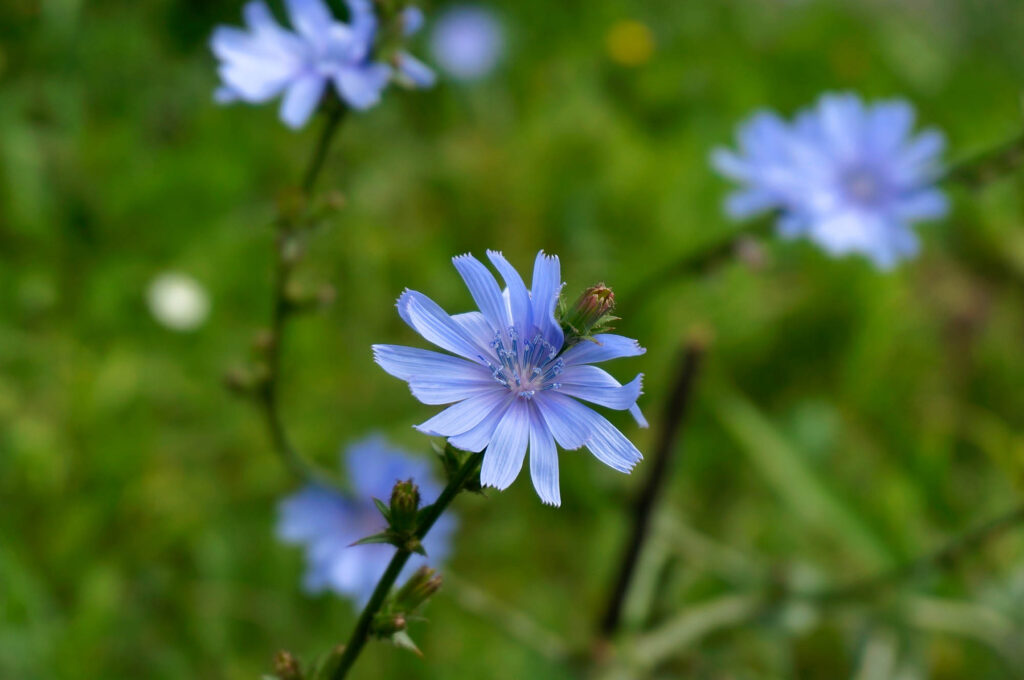
Chicory – Common chicory (Cichorium intybus) is a somewhat woody, perennial herbaceous plant of the dandelion family Asteraceae, usually with bright blue flowers.
94. Himalayan Blue Poppy
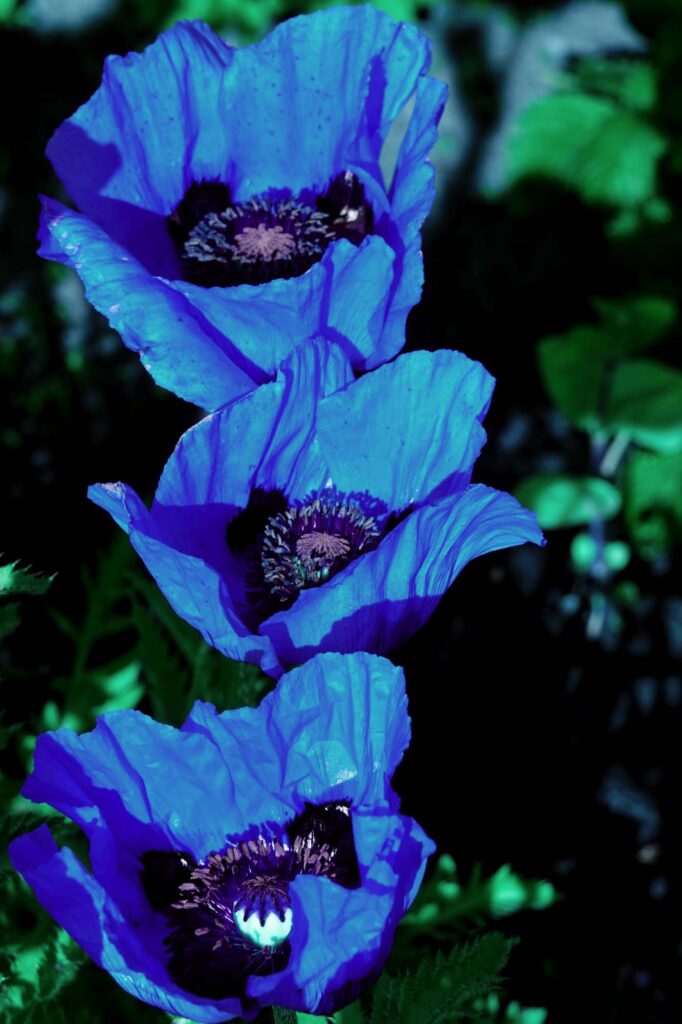
Himalayan Blue Poppy – Blue Himalayan poppy (Meconopsis betonicifolia) looks just like you might expect, like a poppy but in a striking shade of cool blue.
95. Germander Sage
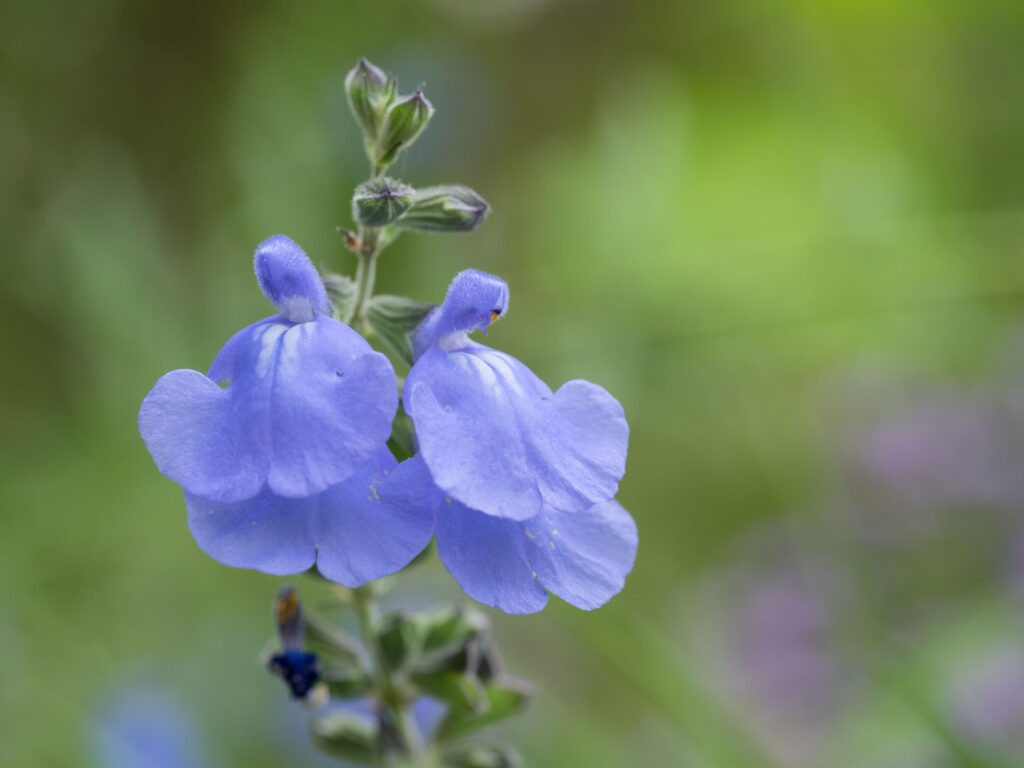
Germander Sage – Over a long bloom season, germander sage (Salvia chamaedryoides) contrasts surrounding flowers with a mist of blue.
96. Calla lilies
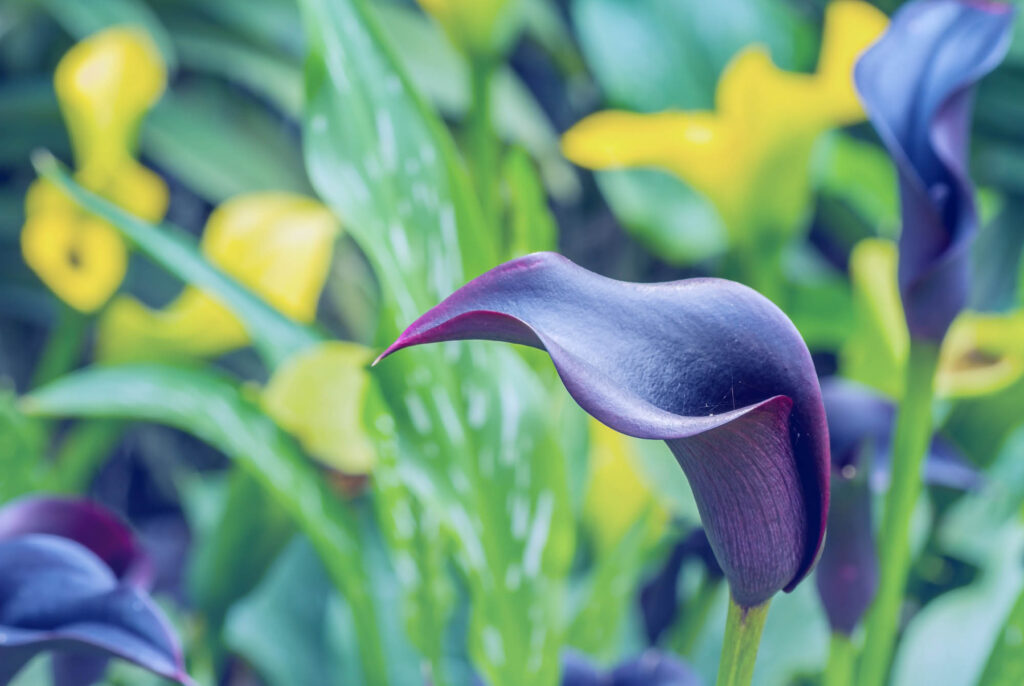
Calla lilies – Calla Lilies are most commonly seen in the popular white (wedding) variety, but they come in a wide range of other colors, including a deep purplish-blue tone.
97. Lungwort
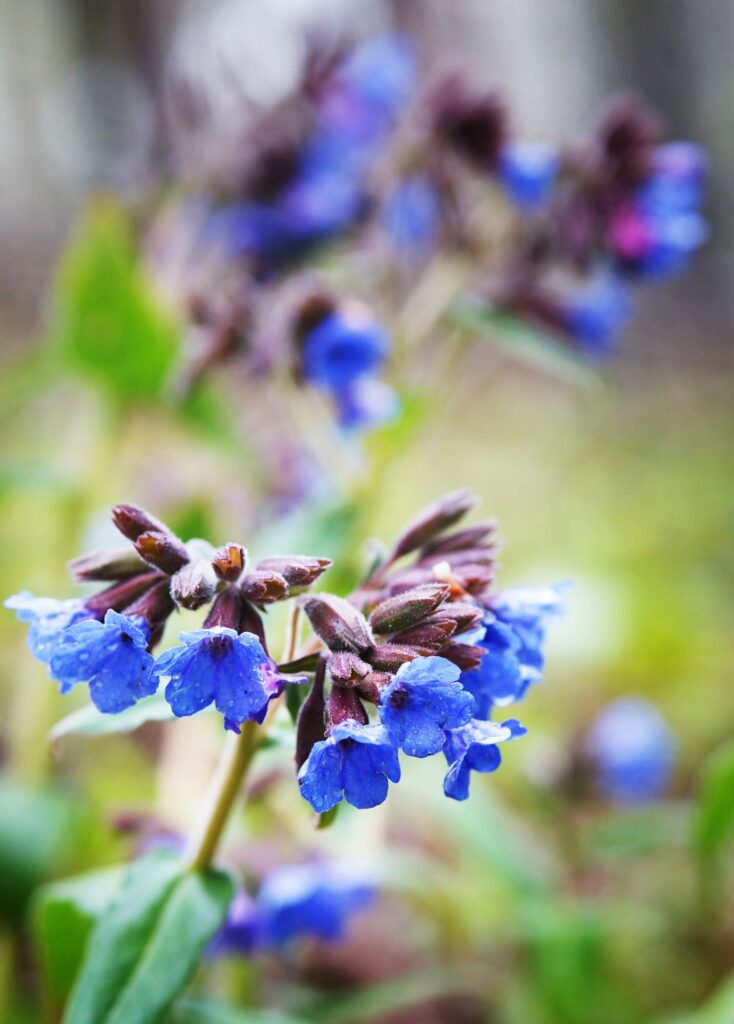
Lungwort – Lungwort (Pulmonaria sp) gets its name from the fact that herbalists from long ago thought the leaves of the plant looked like a lung, and therefore would treat lung disorders.
98. Blue Daisy
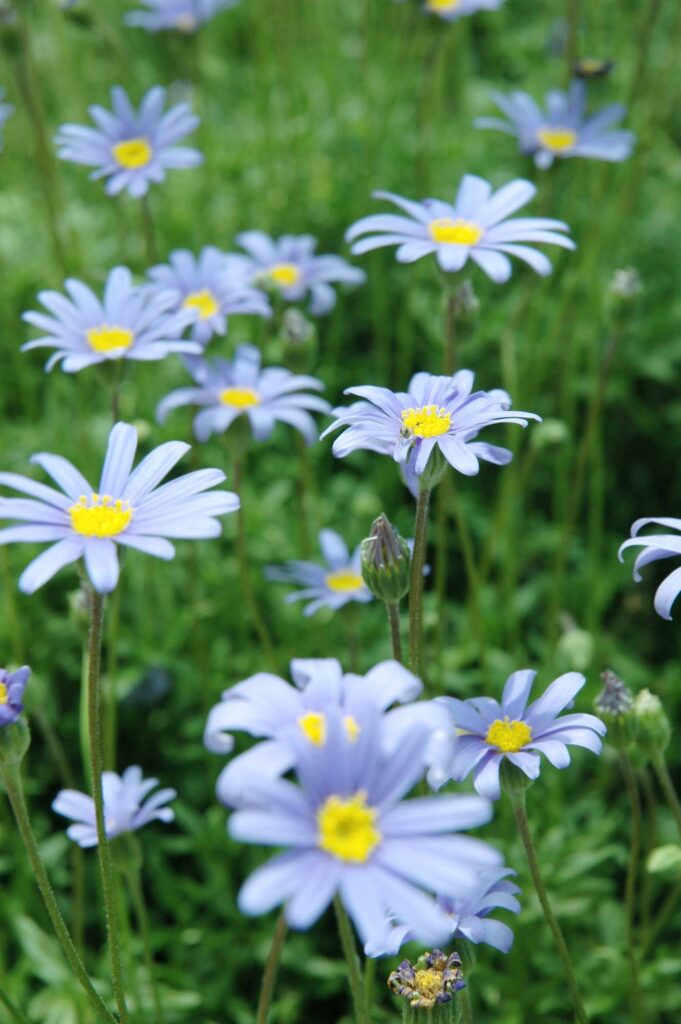
Blue Daisy – Blue daisy is known as Felicia daisy or blue kingfisher daisy.
99. Balloon Flower
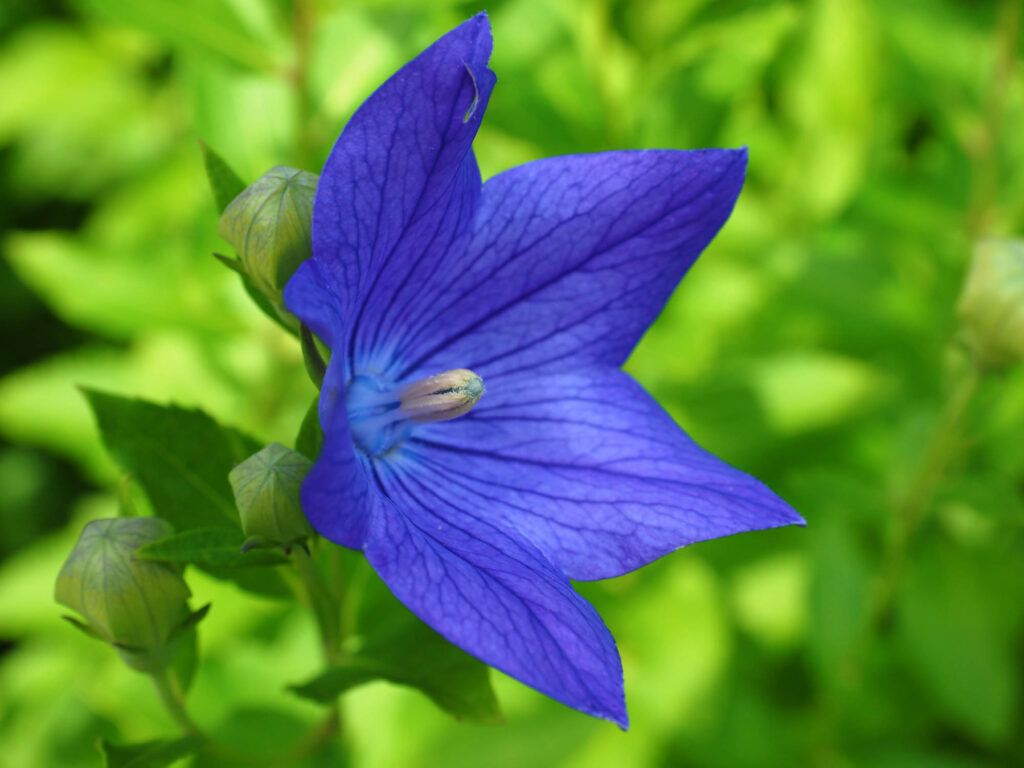
Balloon Flower – Balloon flower, Platycodon grandiflorus, is a native of the Russian Far East, China, Japan, and Korea that has become a garden sensation in the United States.
100. Blue Quandong
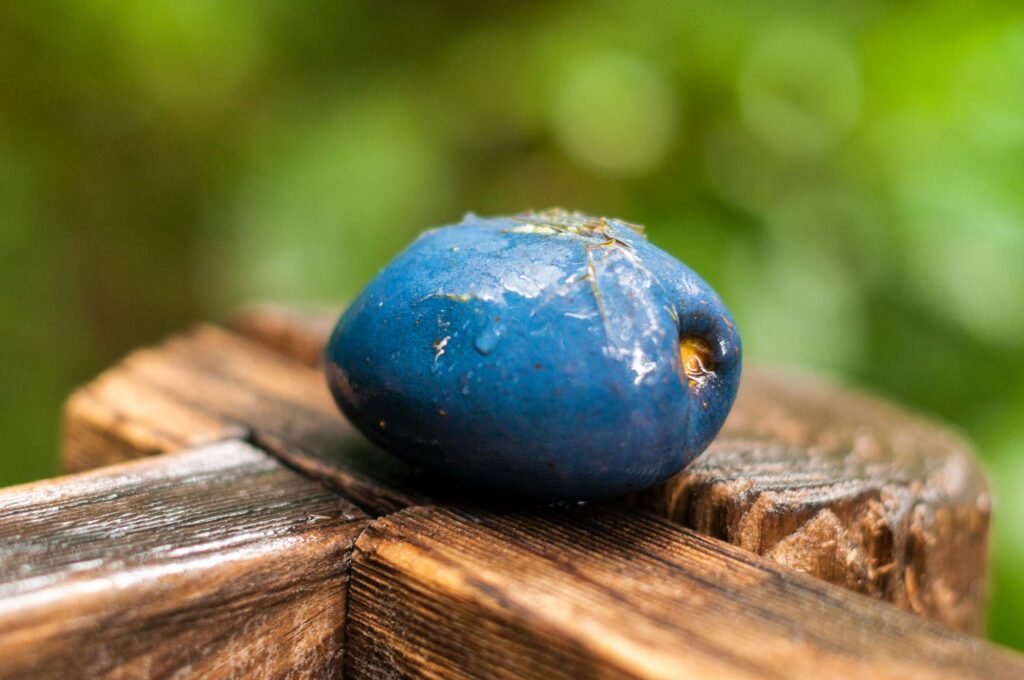
Blue Quandong – Blue Quandong is a species of flowering plant that occurs from India to New Caledonia and northern Australia. Its fruits have a spherical-like shape and bright blue or purple color.
101. Salvia Uliginosa
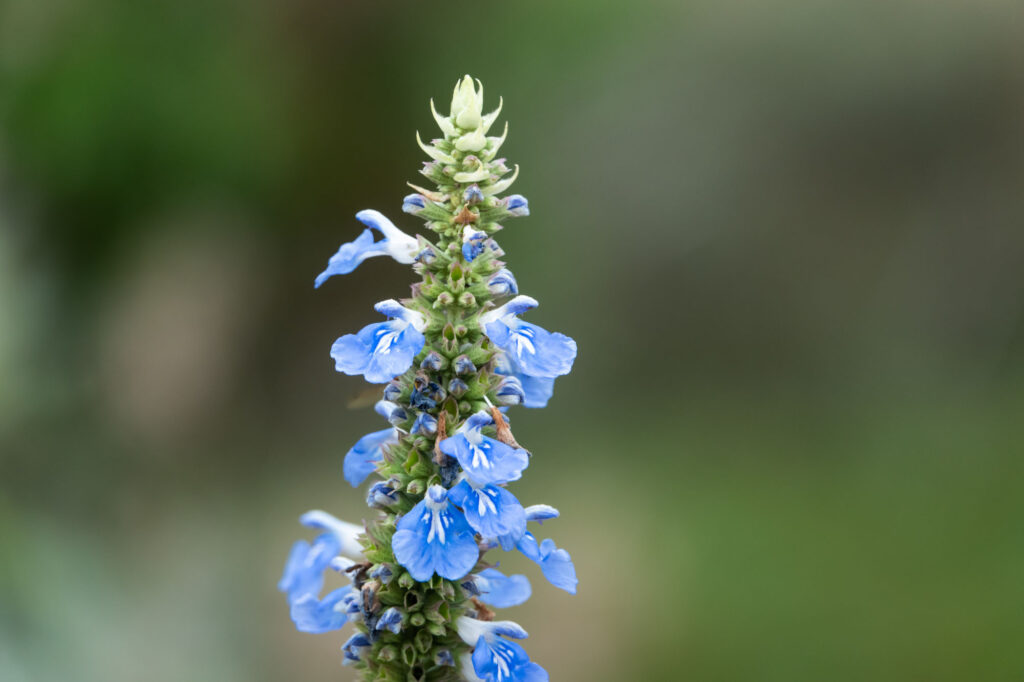
Salvia Uliginosa – Salvia uliginosa, the bog sage, is a species of flowering plant in the family Lamiaceae, native to southern Brazil, Uruguay, and Argentina.
Things that are blue in nature
As said, blue is the rarest color in nature. Still, we think we did a pretty good job putting together this massive list with the 100+ naturally blue things.
Did we forget something? Let us know in the comments!
We promise to constantly update this article as we come across more naturally blue things.
Did you like this list with things that are blue in nature? Then share it on your social media!
robertswasuce1988.blogspot.com
Source: https://www.colorsexplained.com/blue-things-that-are-blue/
0 Response to "How Many Shades of Blue Exist in Nature"
إرسال تعليق